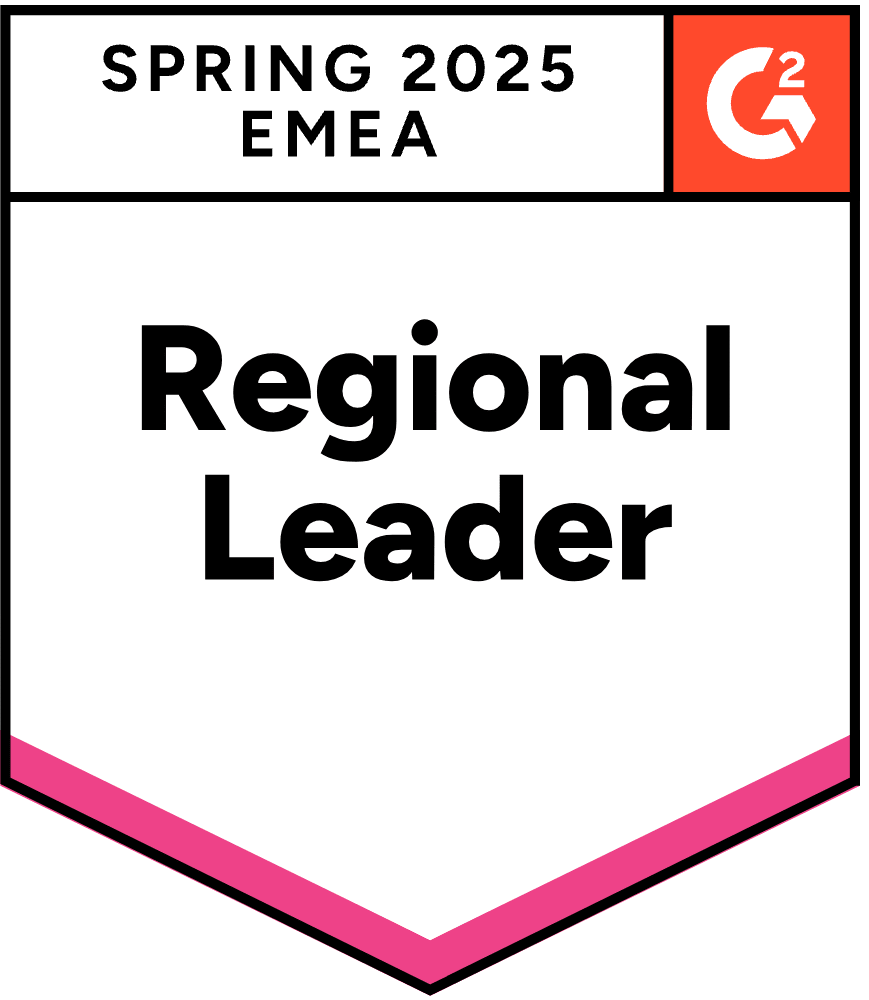- Blog
- What is Ethical Marketing? A Guide with 12 Practical Examples
What is Ethical Marketing? A Guide with 12 Practical Examples
Table of Contents
Would you trust a brand that lied to you? Probably not… and you’re not alone.
In fact, 71% of consumers say they’d ditch a brand the moment their trust gets broken due to unethical marketing or data misuse. That’s not a stat, it’s a wake-up call.
Ethical marketing is simple: it’s marketing that’s honest, transparent, fair, and rooted in real values, not manipulation. It’s about doing right by your customers, your community, and the planet.
In this article, you’ll learn what ethical marketing looks like in action, how to build a strategy around it without sounding preachy, and how 12 innovative brands are using it to build trust and sell smarter.
Let’s dive in!
What is ethical marketing?
Ethical marketing is about doing the right thing, even when no one’s watching. It’s a mindset—and a practice—that prioritizes honesty, fairness, and social responsibility in every part of your marketing.
And this isn’t just theory. 92% of millennials say they prefer to buy from ethical companies.
Ethical marketing shapes:
- your messaging,
- your campaigns,
- how you segment and research your audience, and even
- how you design your product and choose partners.
The basic principles of ethical marketing
So, how do you actually do ethical marketing? Like, beyond just sounding nice in a mission statement?
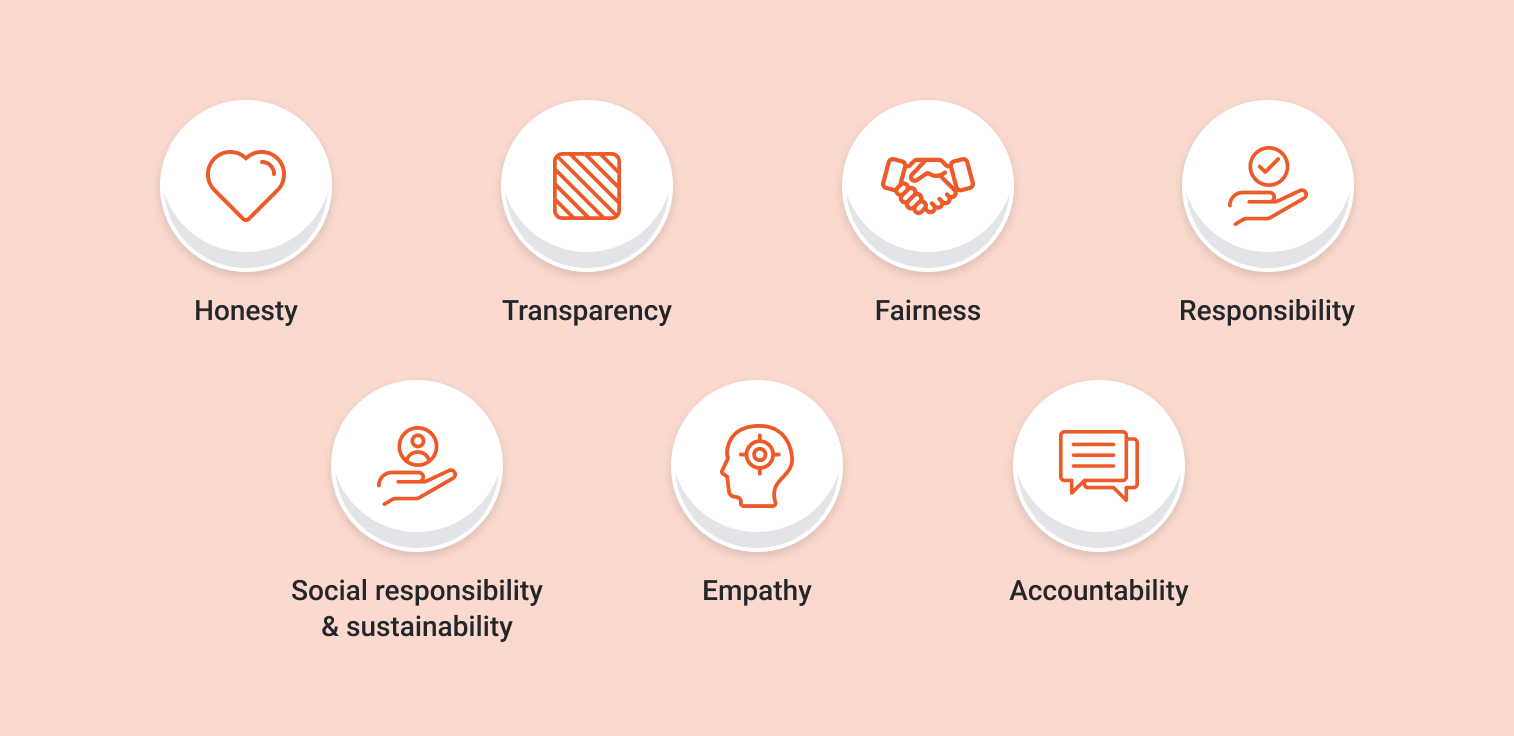
1. Honesty
Forget the gimmicks. Ethical marketing means telling the truth, even when it’s not the easiest route.
No inflated claims, no sneaky terms buried in fine print. If your product does something great, say it. If it doesn’t, don’t pretend it does. Because once your audience catches a lie—and they will—they’re gone.
2. Transparency
Your customers aren’t just buying a product, they’re buying into how it was made.
Transparency means pulling back the curtain to:
- show your sourcing,
- break down your pricing, and
- own your limitations.
It builds trust faster than any shiny slogan can—and keeps you honest as you grow.
3. Fairness
Fairness shows up in every interaction, from pricing to advertising tone to customer support.
Are you respecting your customer’s awareness stages, intelligence, time, and money? Are you making sure your campaigns don’t exploit fears or insecurities just to drive conversions?
Fair marketing uplifts, it doesn’t manipulate.
4. Responsibility
Every campaign has ripple effects.
Did your ad spread a stereotype? Does your packaging create unnecessary waste?
Responsibility means thinking ahead and owning up when you fall short. Ethical marketers admit mistakes and fix them, fast.
5. Social responsibility & sustainability
Your brand doesn’t need to save the world, but it should contribute to making it better.
That could mean reducing your carbon footprint, treating workers fairly, or supporting causes that align with your values. Today’s customers want to buy from businesses that give a damn (and show it).
6. Empathy
Ethical marketing starts with listening. What does your audience really need? What challenges are they facing?
Empathy means meeting people where they are, speaking like a human (not a sales robot), and offering solutions that feel personal, not pushy.
7. Accountability
Your brand is not perfect, and that’s okay—as long as you stay accountable.
When customers give feedback, respond with openness. Customer feedback forms can be invaluable for this process. When something backfires, own it.
Being accountable shows maturity, humility, and a willingness to grow, which are qualities that today’s buyers truly respect.
12 ethical marketing practices from ecommerce brands
These brands aren’t just doing good for the sake of it; they’re proving that leading with purpose is also a smart, profitable strategy.
1. REI
REI isn’t your typical outdoor gear brand. It’s a consumer cooperative, which means it’s owned by its members, not shareholders.
That core structure drives every ethical decision they make.
They also champion sustainability through Re/Supply, a program that encourages members to join the circular economy by trading in used gear or shopping for pre-loved items.
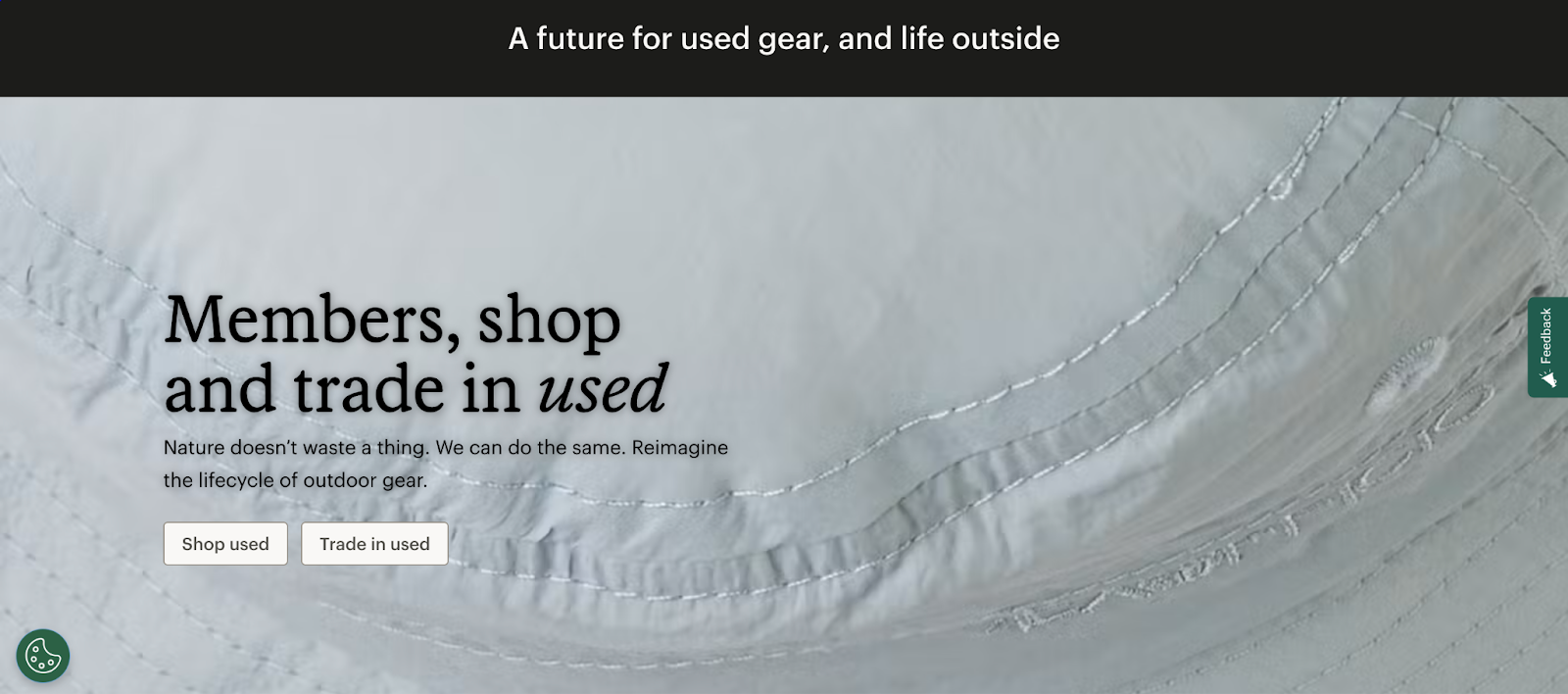
Instead of chasing profit at all costs, REI reinvests into:
- Outdoor access programs
- Member dividends and rewards
- Grants for environmental nonprofits and local communities
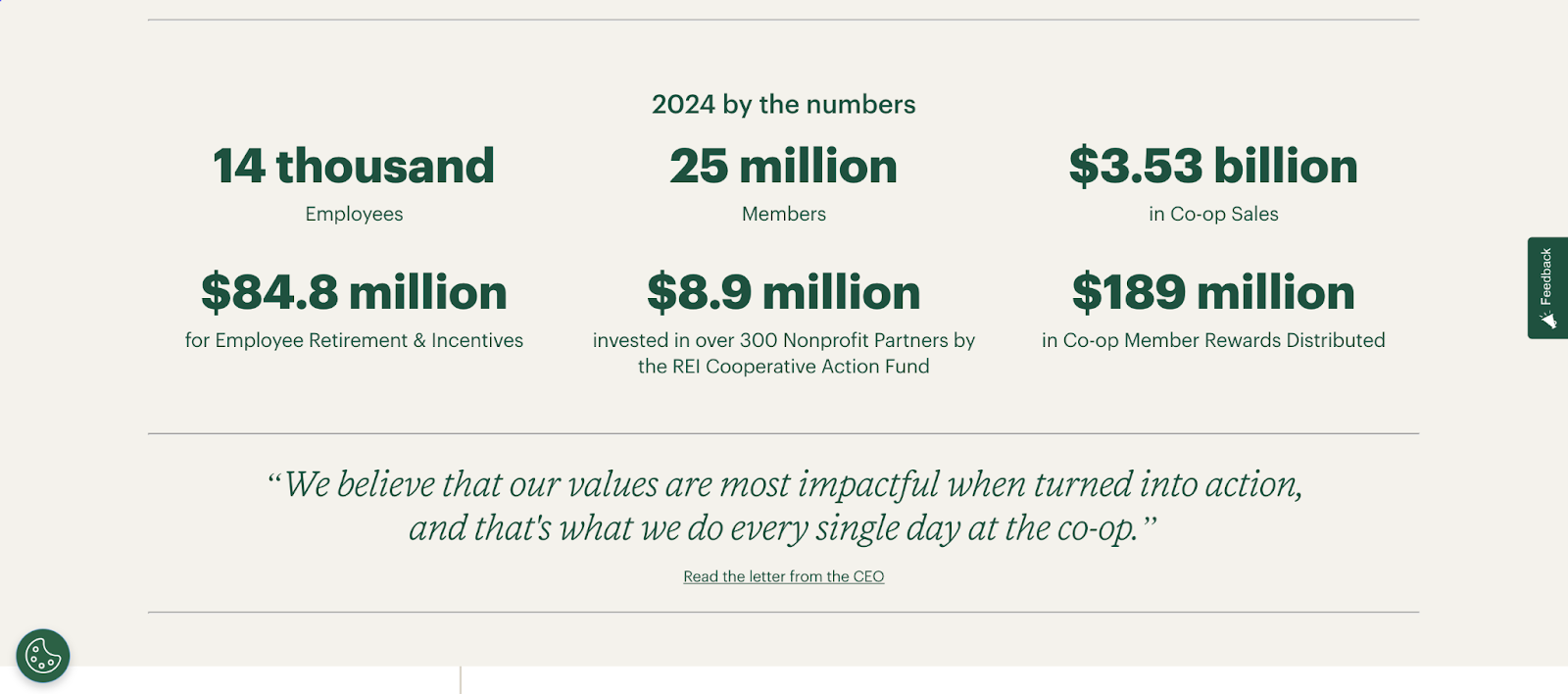
And then there’s #OptOutside—the now-iconic campaign that started in 2015 when REI did the unthinkable: closed all stores on Black Friday, gave employees a paid day off, and told everyone to go outside instead.
#OptOutside became a full-blown movement, partnering with national parks, nonprofits, and thousands of like-minded brands.
2. The Body Shop
From the outset, The Body Shop has been committed to cruelty-free beauty and fair trade. Their campaign “Forever Against Animal Testing” gained millions of signatures pushing for a global ban:
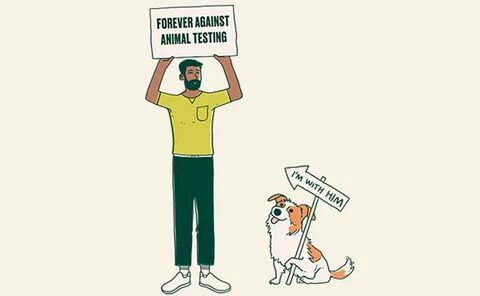
They go beyond skincare with:
- Ethical sourcing
- Refillable packaging stations
- Clear plastic-reduction goals (you can even find refill store locations on their site)
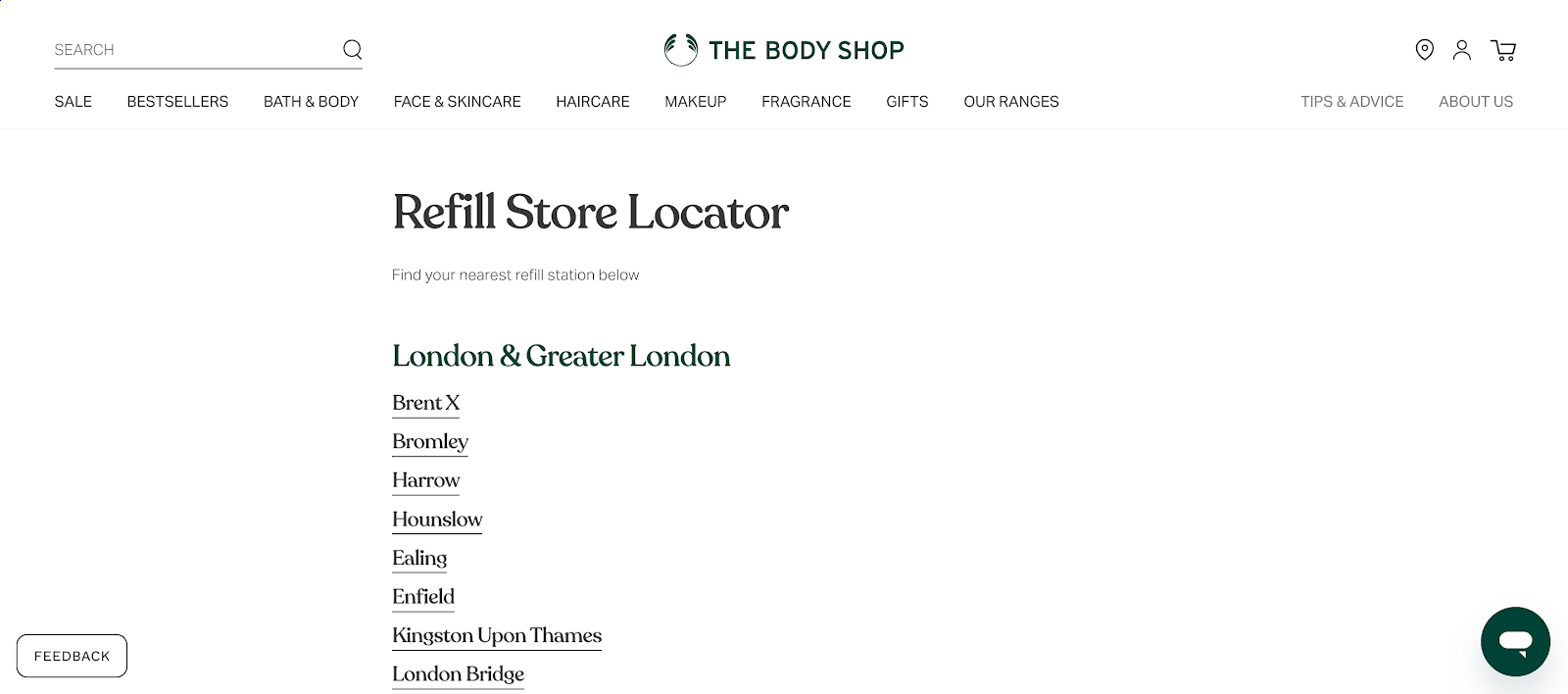
3. Tony’s Chocolonely
Tony’s mission is bold and clear: make chocolate 100% slave-free.
They’re tackling modern slavery and child labor head-on, especially in West Africa, where most cocoa is sourced and exploitation runs deep.
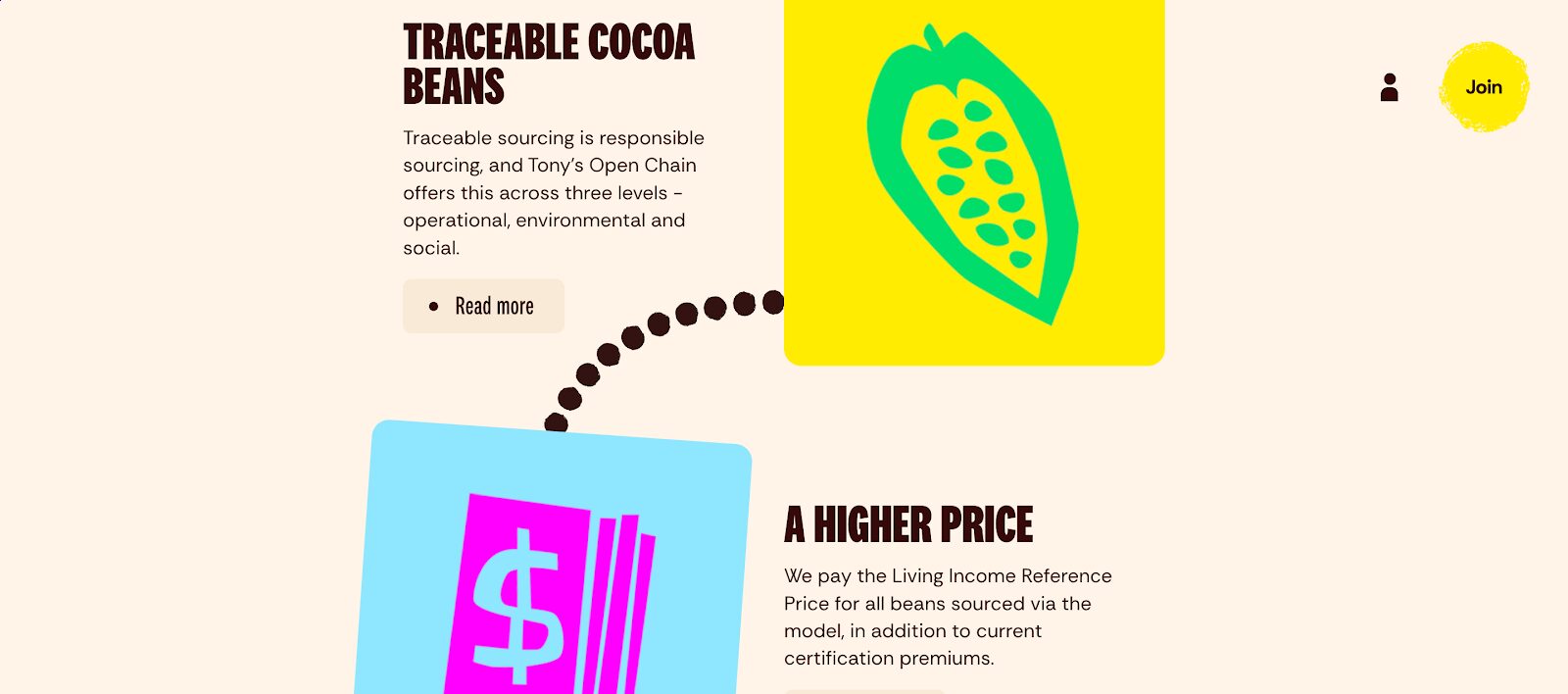
To back it up, they:
- Trace every cocoa bean directly to the farm
- Offer full bean-to-bar transparency
- Share profits openly and publish a detailed annual “Fair Report” outlining their financial and ethical progress
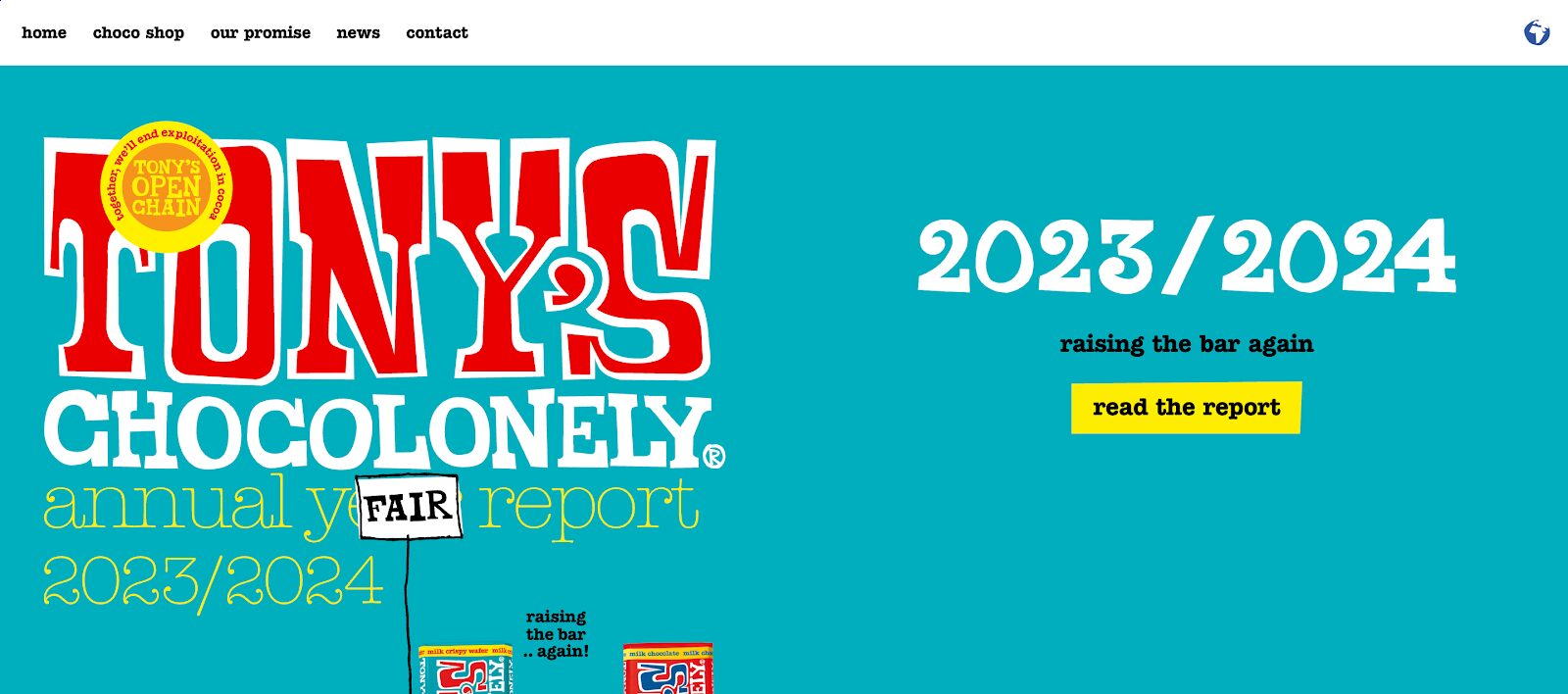
While other brands stay vague, Tony’s brings the full picture into focus.
4. Veja
Veja is refreshingly upfront about how their sneakers are made and exactly what they cost.
They skip paid advertising altogether, choosing instead to invest in fair wages, eco-friendly materials, and sustainable innovation.
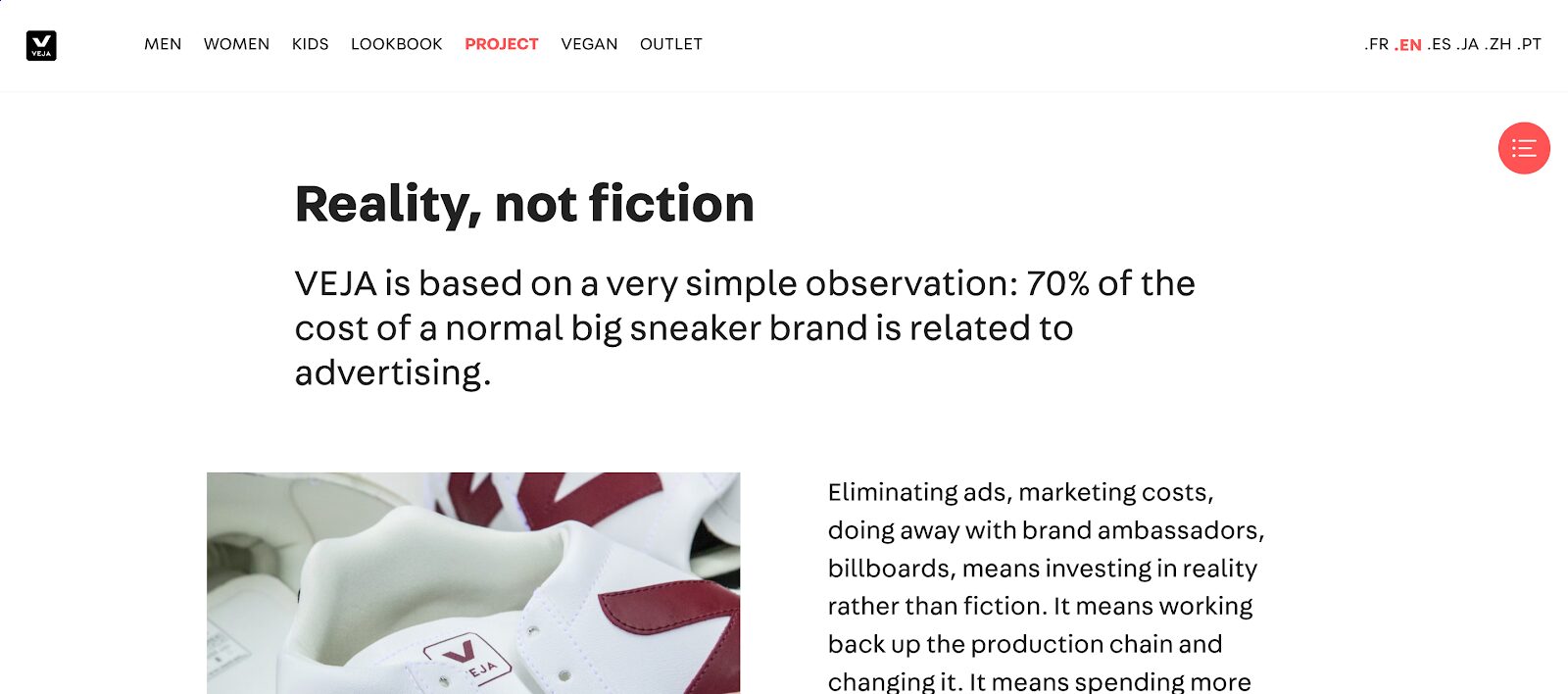
Their branding is clean, minimalist, and rooted in values, allowing the quality and their ethical approach to speak for themselves.
Growth comes from word-of-mouth and earned media, not flashy influencer deals.
And it works. Their shoes have been spotted on royalty and Hollywood alike, from the Princess of Wales to Scarlett Johansson and Meghan Markle.
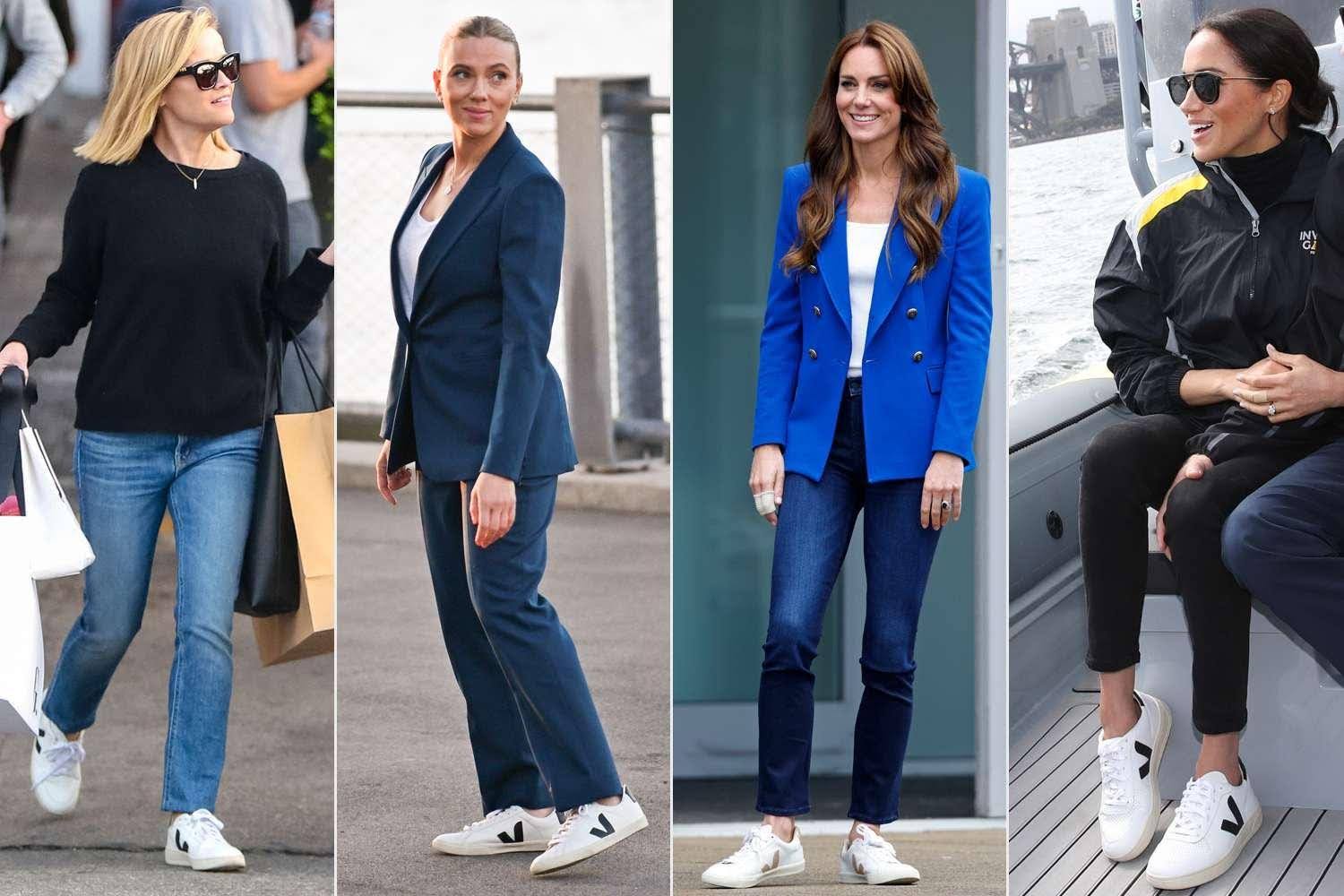
5. Allbirds
Allbirds is committed to being 100% carbon neutral, and it has built its entire supply chain around this promise.
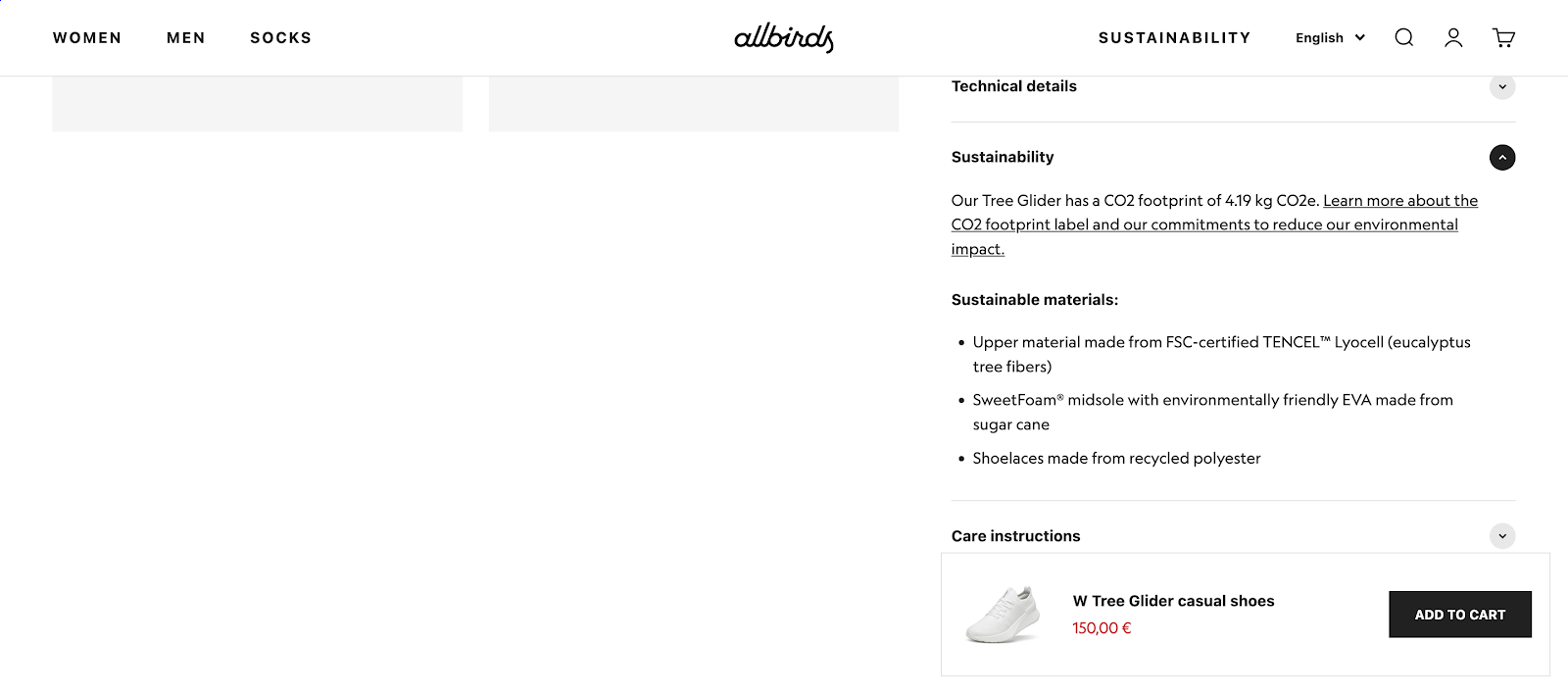
They reduce emissions by using:
- Merino wool from certified humane, regenerative farms in New Zealand
- Eucalyptus fiber from FSC-certified forests
- Sugarcane-based EVA for their SweetFoam™ soles
They team up with influencers to spotlight their mission, sharing it through thoughtful, sustainability-focused content on Instagram:
But they don’t stop there. Allbirds is transparent about:
- Product-level emissions
- Where materials come from
- What they’re still working on (like cutting down on synthetic materials)
They even open-sourced their carbon footprint calculator so other brands can follow suit.
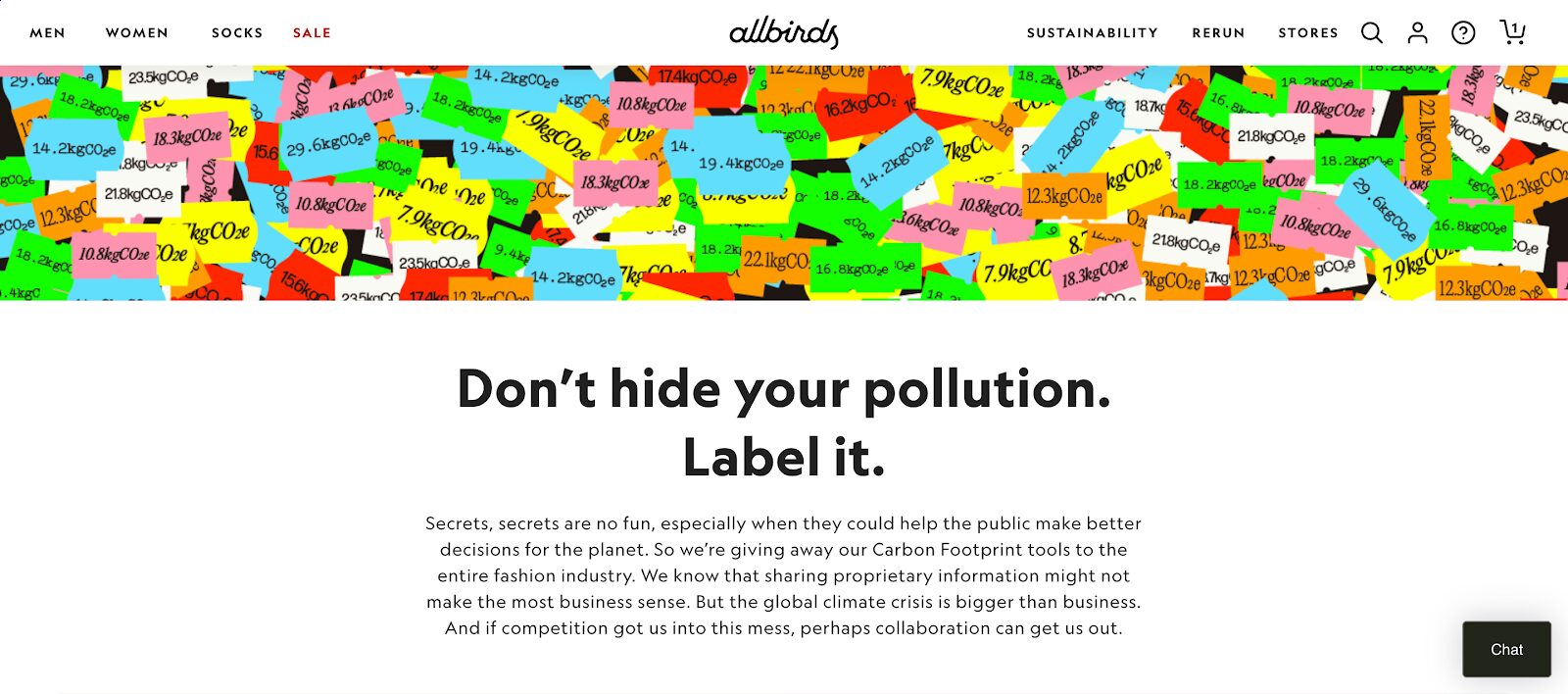
And in partnership with Adidas, they co-created the world’s lowest carbon shoe: the Futurecraft.Footprint.
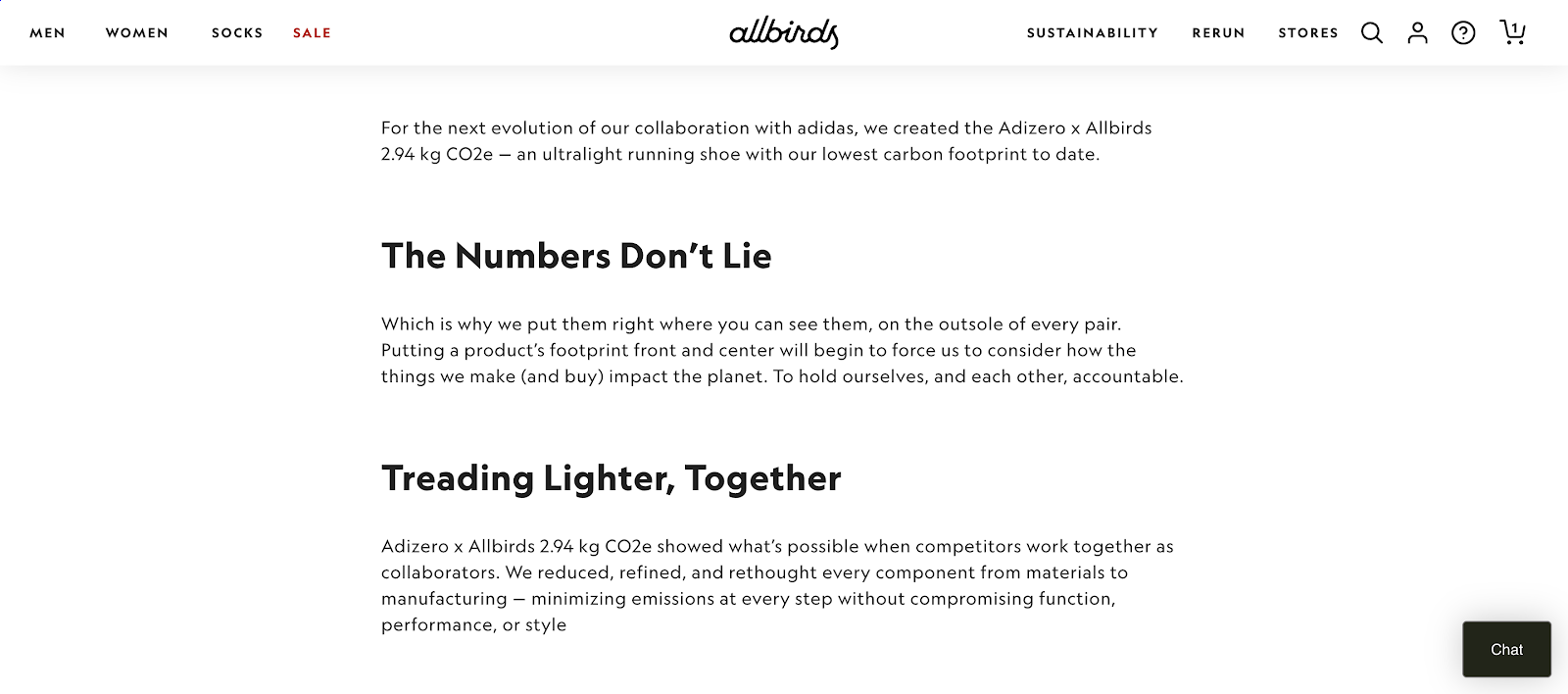
6. Who Gives a Crap
With a name like that, you know they lead with humor, but their mission is serious. Who Gives a Crap donates 50% of profits to build toilets in developing countries.
By 2025, they’ve given over $18 million to charity.
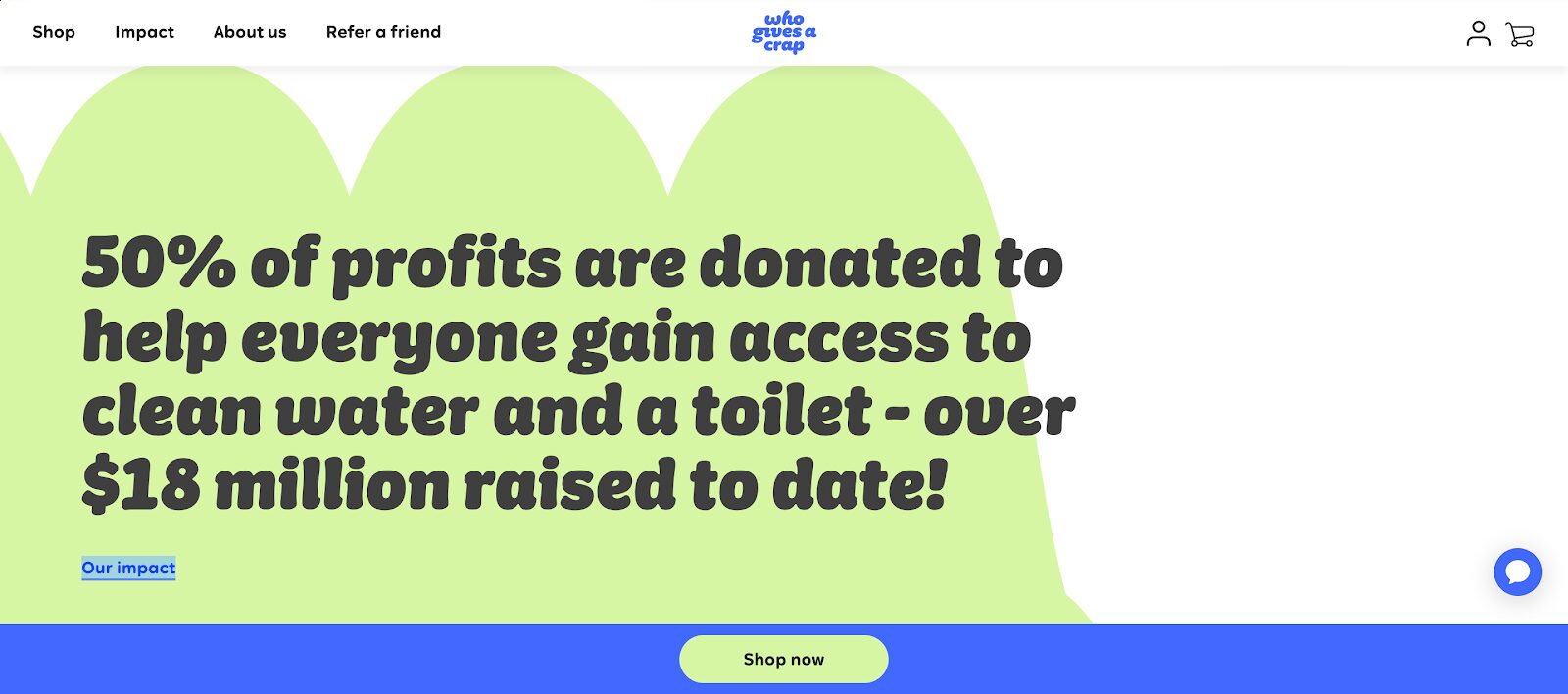
They’re transparent too, publishing regular impact reports that clearly show where every dollar goes.
Their eco-friendly products are made from 100% recycled paper or bamboo, helping to cut deforestation and reduce the use of chemicals.
And instead of plastic, each roll is wrapped in bright, recyclable paper: practical, planet-friendly, and full of personality.
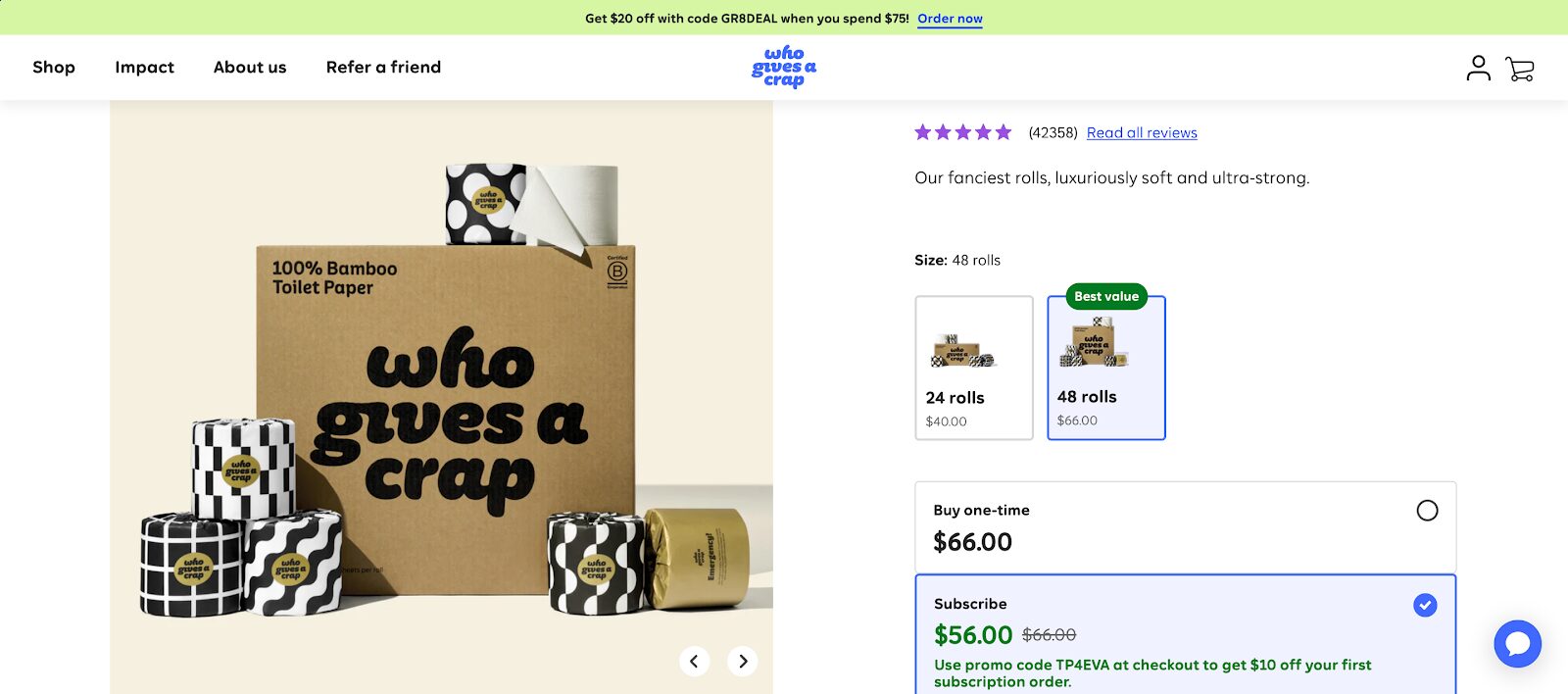
7. Lush Cosmetics
Lush brings handmade, ethical beauty to life—literally. Their products are crafted in small batches using fresh ingredients like fruits, herbs, and essential oils.
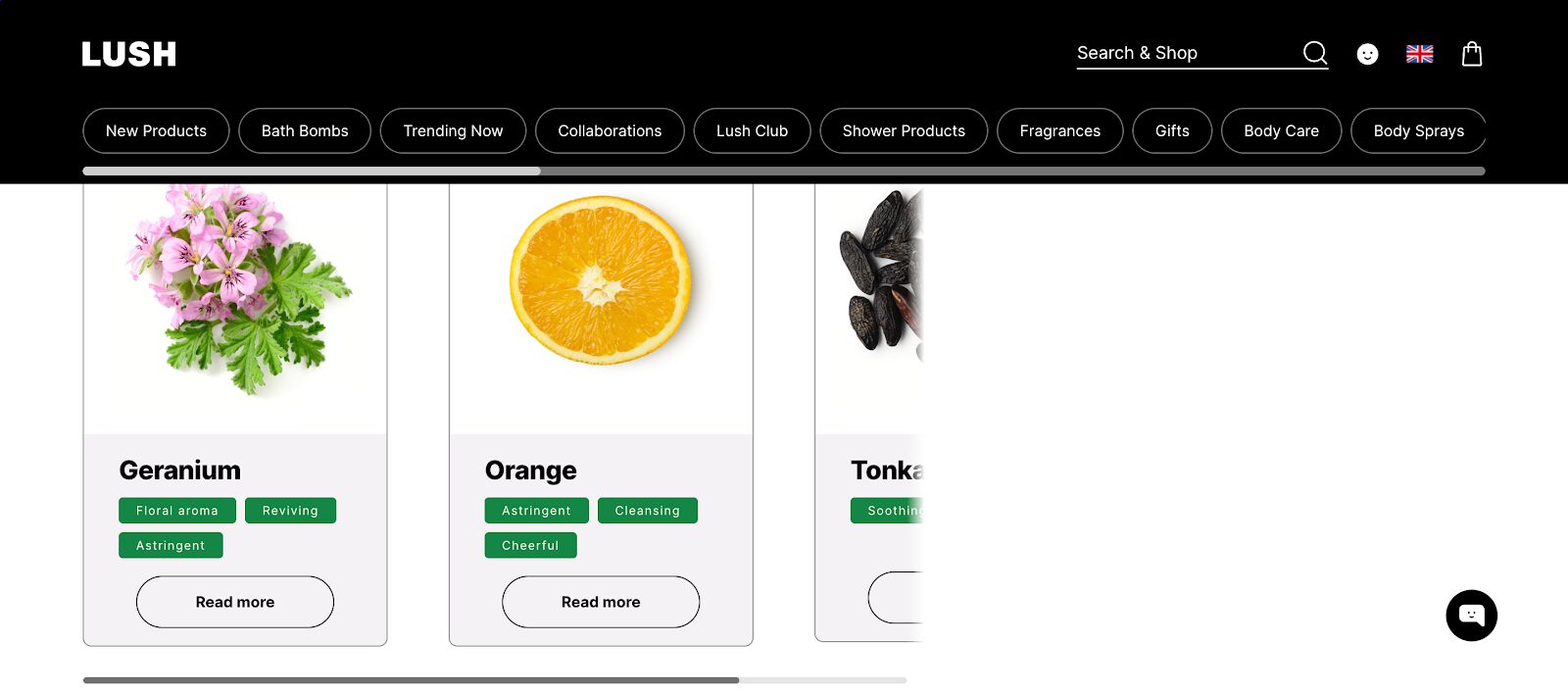
Many products even feature the face of the person who made them on the label, a personal touch rarely seen in the beauty world.
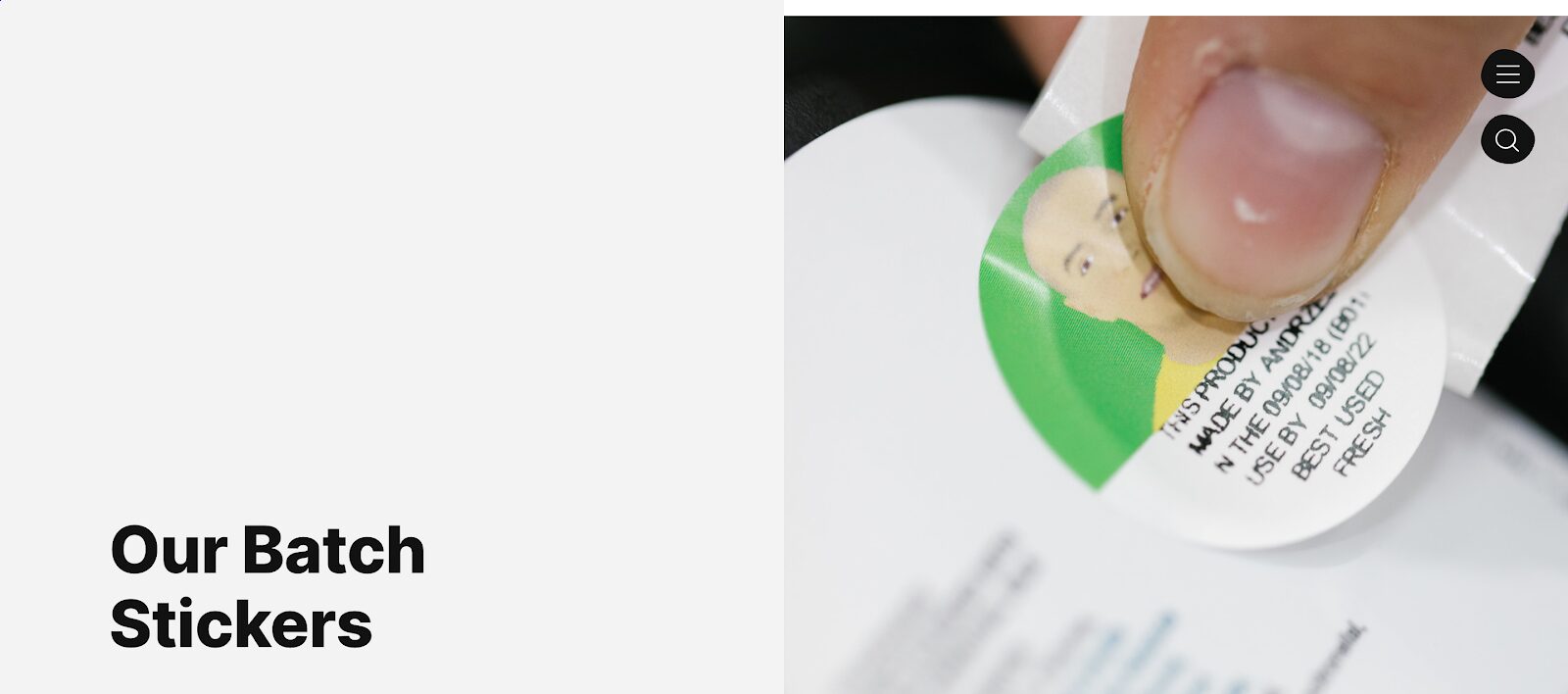
Their no-animal-testing stance is ironclad not just for themselves, but for all their suppliers, too.
And they don’t just talk about it. They campaign globally to help end animal testing through legislation and public action.
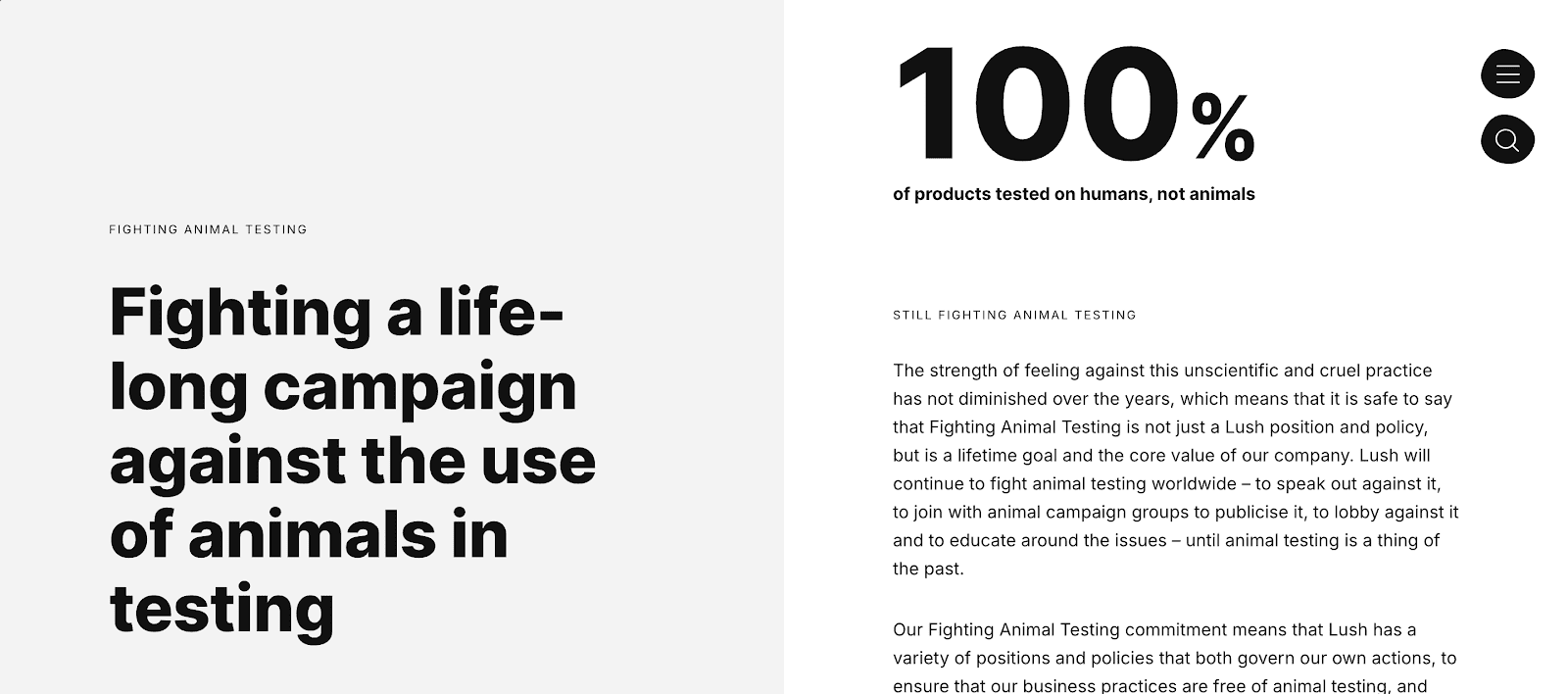
In a bold move, Lush left Instagram in 2023 as part of their #BigTechRebellion, choosing principles over promotion.
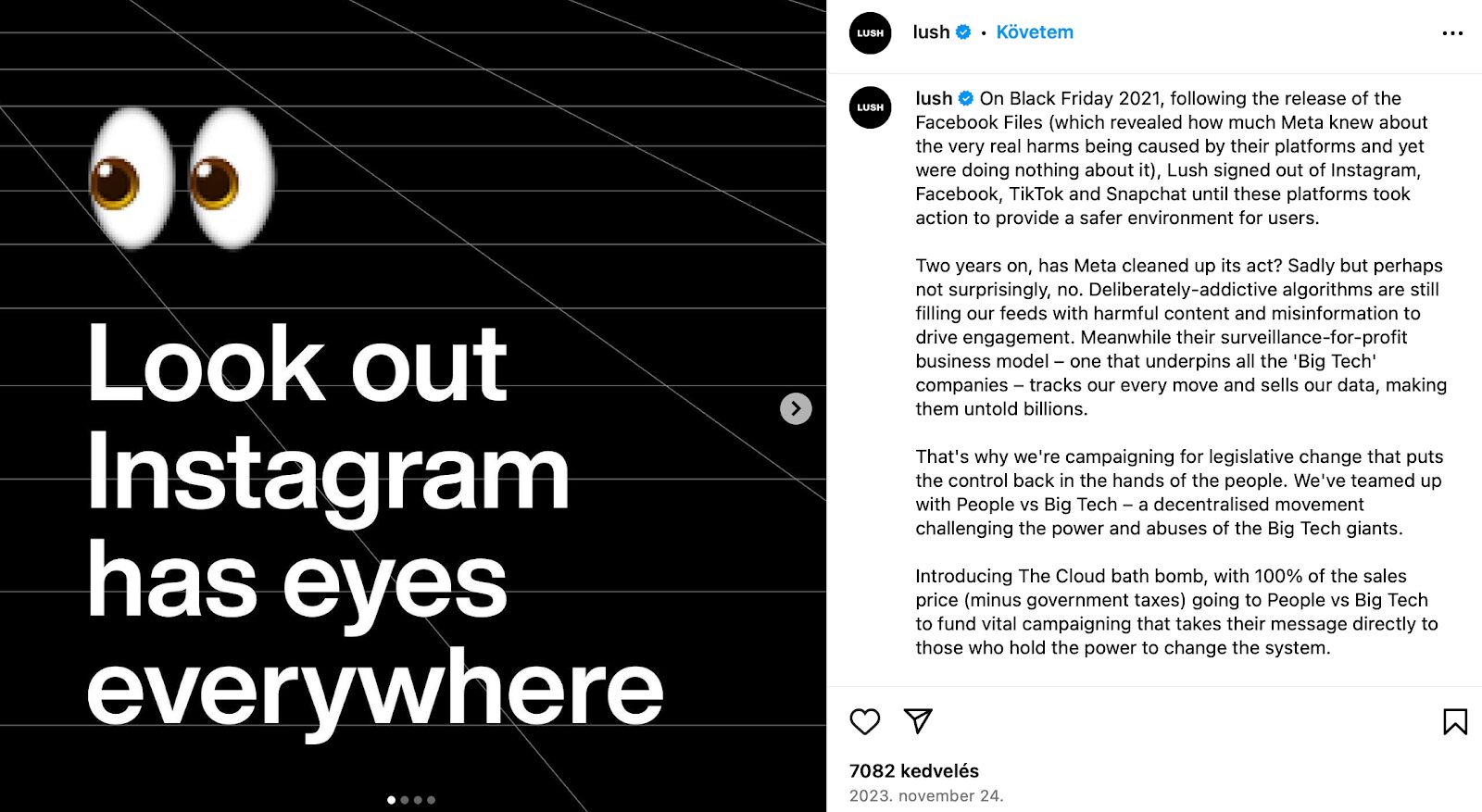
Their stores double as activist spaces, using bold displays and art to spark conversations, not just sales.
8. Innocent Drinks
Innocent has mastered the art of being playful with a purpose. Their quirky tone is evident everywhere, from smoothie bottles to Instagram posts, but underneath the charm lies a foundation of radical honesty.
One label reads: “Contains nothing dodgy. Not even a tiny bit of dodginess.” And they mean it.
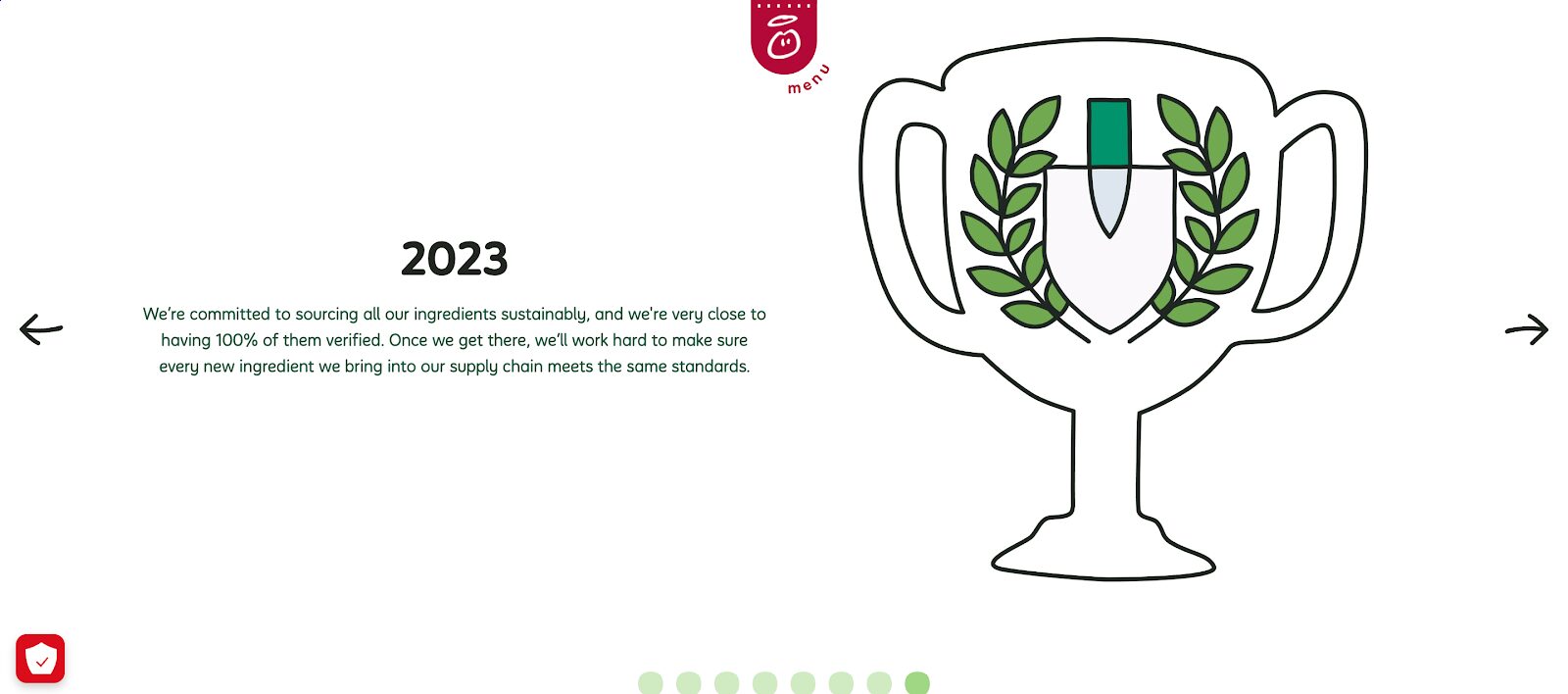
- 10% of profits go to the Innocent Foundation, which funds projects tackling hunger, food security, and sustainable farming.
- They’ve supported 80+ initiatives across 50+ countries, always with a long-term lens.
- Every drink is made with 100% natural ingredients, no added sugar, and full ingredient transparency.
Their Instagram? Equal parts hilarious and wholesome. It’s a model for how to make ethical marketing genuinely fun.
9. Bombas
Bombas built its brand around a powerful promise: for every item sold, one is donated. That’s translated into 150+ million socks, underwear, and t-shirts given to homeless shelters and nonprofit partners.
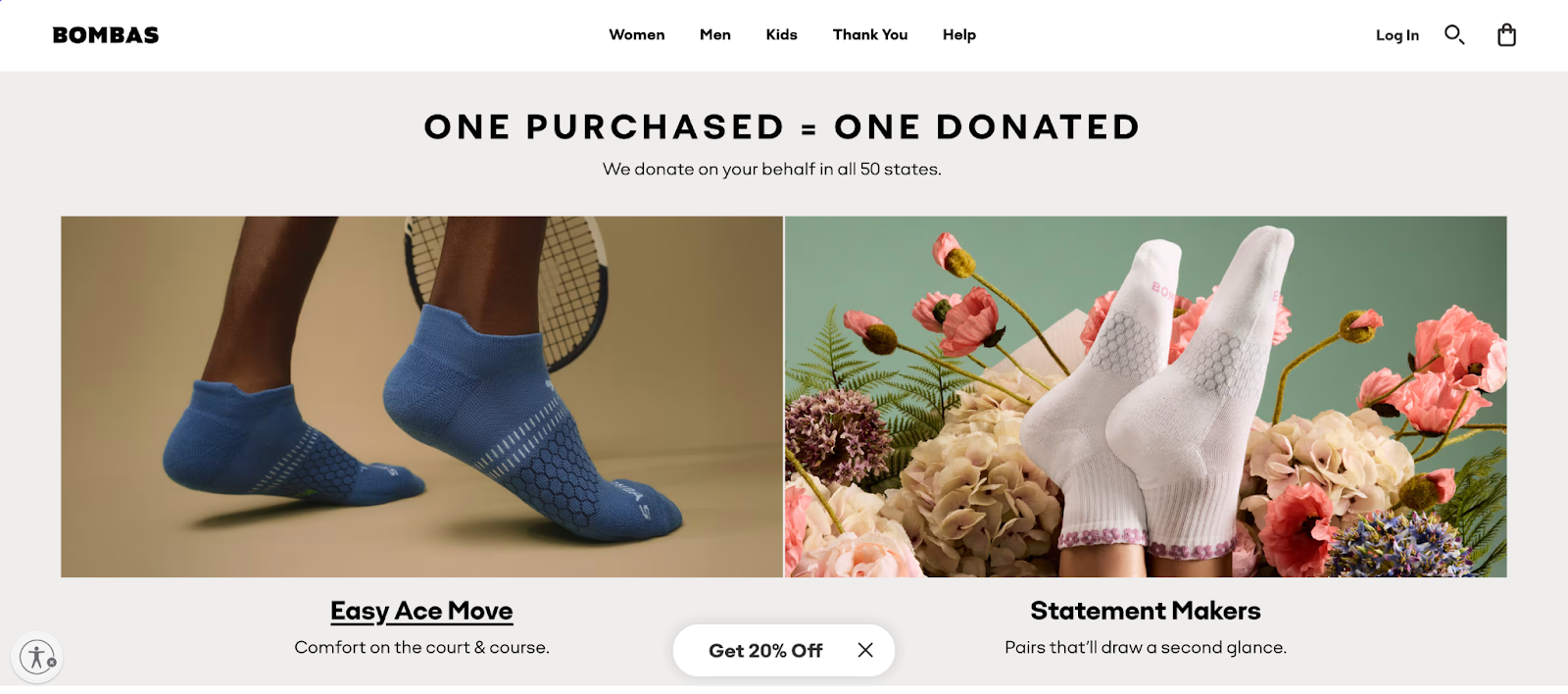
They also promote their efforts regularly on their social media.
What makes Bombas’ marketing stand out is how intentionally they align their mission with their message:
- Clear donation metrics: real numbers, not vague claims.
- Spotlights on partner organizations: showcasing the work of nonprofits instead of just the brand.
- Inclusive storytelling: focused on dignity, not pity, in how they talk about homelessness.
- Purpose-built products: darker colors to hide wear, antimicrobial socks for hygiene, all designed for people in need.
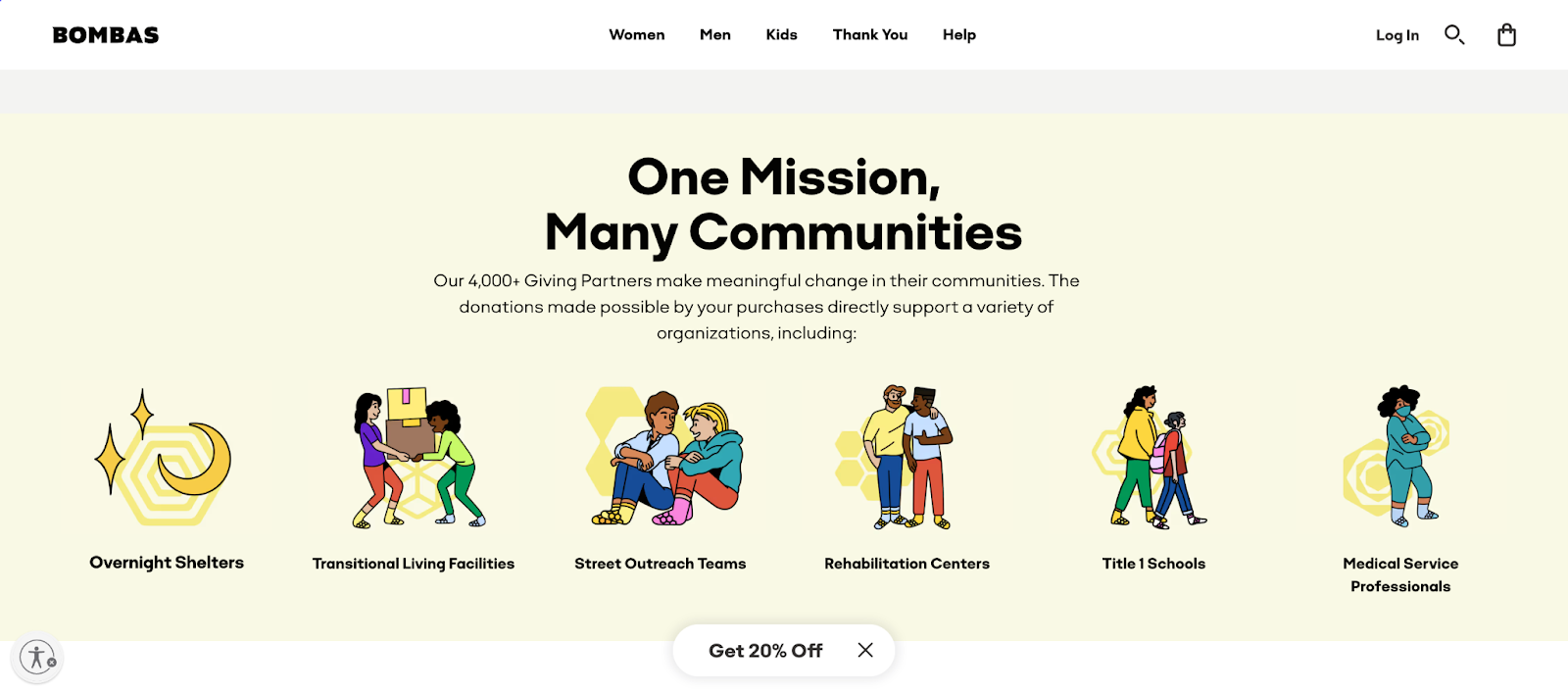
Every element of their branding reinforces trust and shows that ethical marketing works when it’s real, measurable, and empathetic.
10. Mejuri
Mejuri is flipping the script on traditional jewelry marketing by offering “everyday luxury” without the markup and backing that with real transparency and ethical commitments.
Here’s how they lead with values instead of hype:
- Material transparency: from gold to gemstones, customers see sourcing and pricing breakdowns.
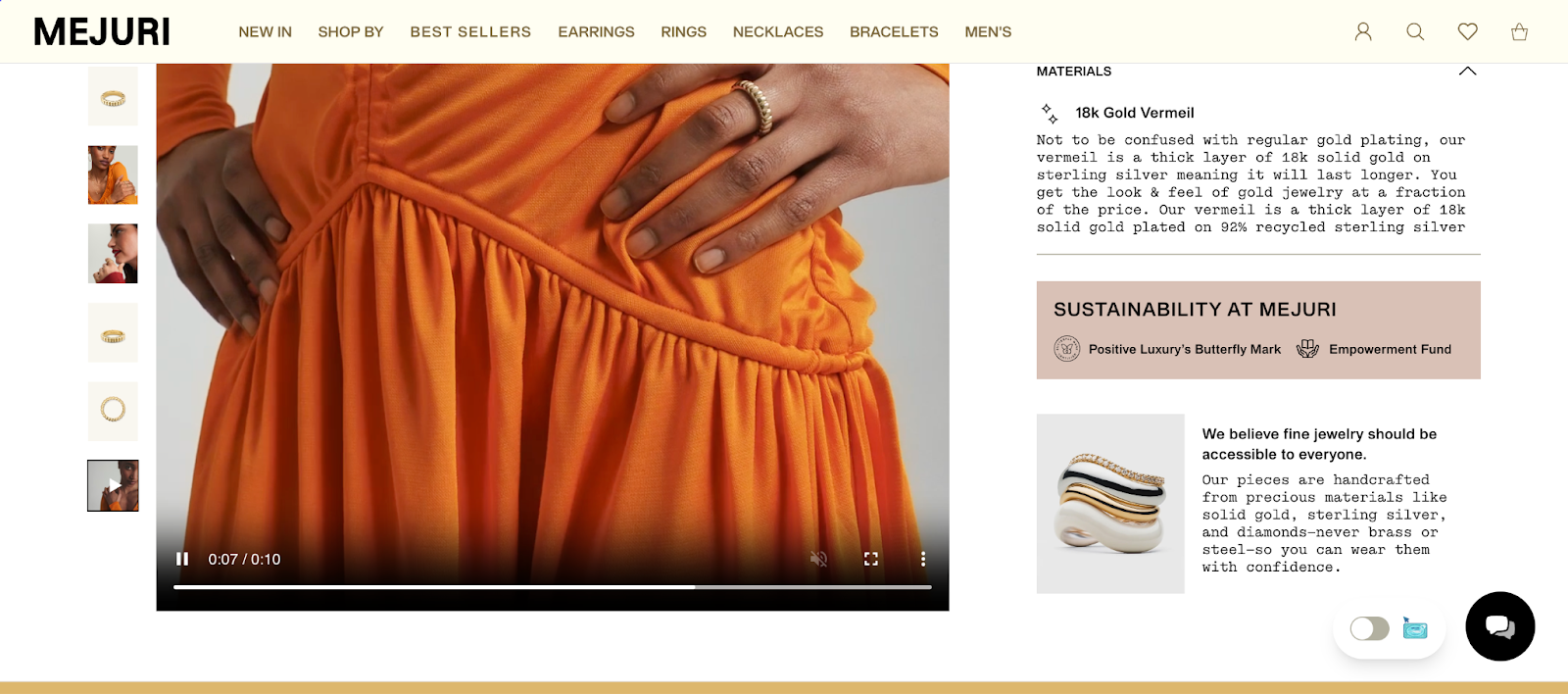
- Real, diverse faces: campaigns feature actual customers, not overly retouched models
- Slow fashion drops: minimalist collections encourage mindful purchases, not impulse buys.
- Social impact partnerships: supporting women’s empowerment programs in Kenya, Uganda, and Zambia.
11. Ethique
Ethique’s lineup of solid beauty bars (shampoo, conditioner, face cleansers) is 100% plastic-free, zero-waste, and carbon-neutral.
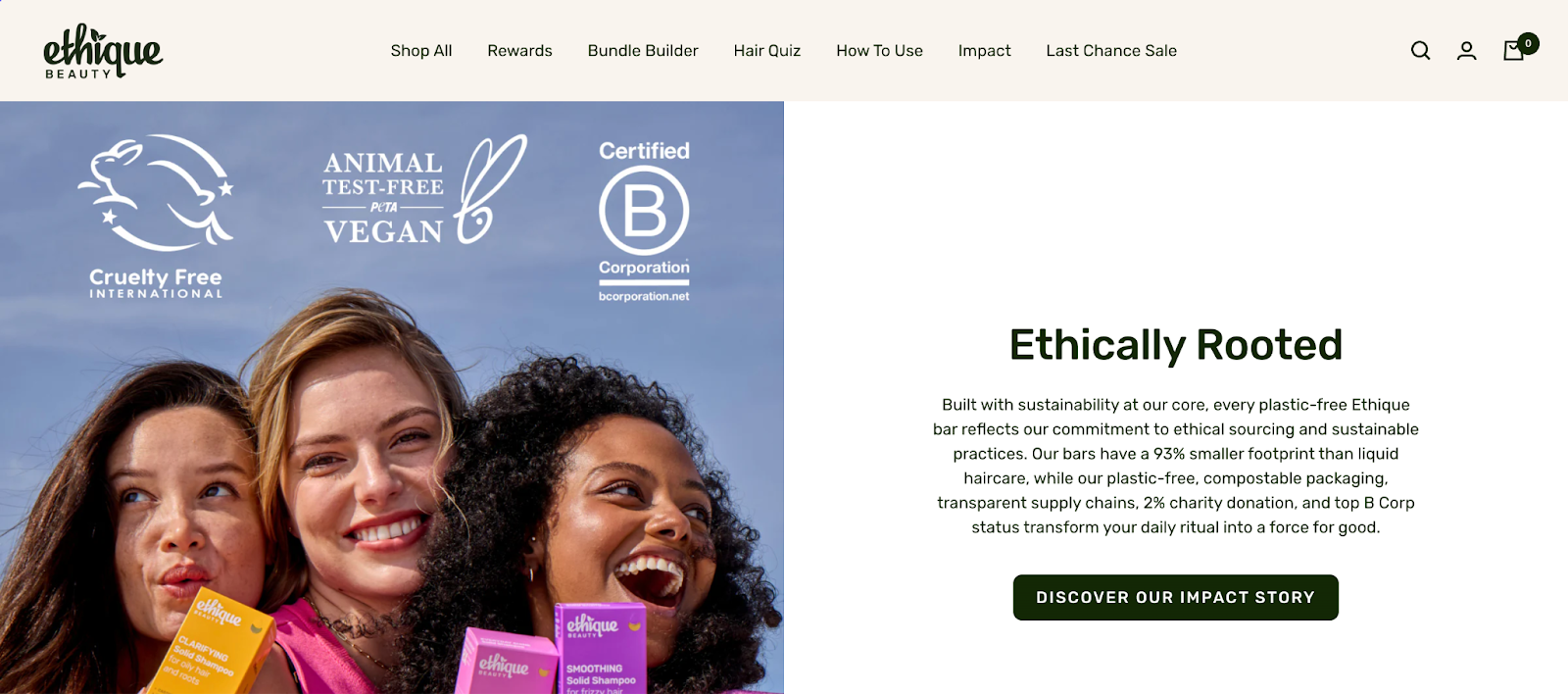
Their ethical marketing hits all the right marks:
- Certified B Corp + climate positive: independent verification, not just branding.
- 2% of every sale goes to charity: not revenue, not profits—sales.
- Visible impact data: number of bottles saved, emissions reduced, and packaging avoided.
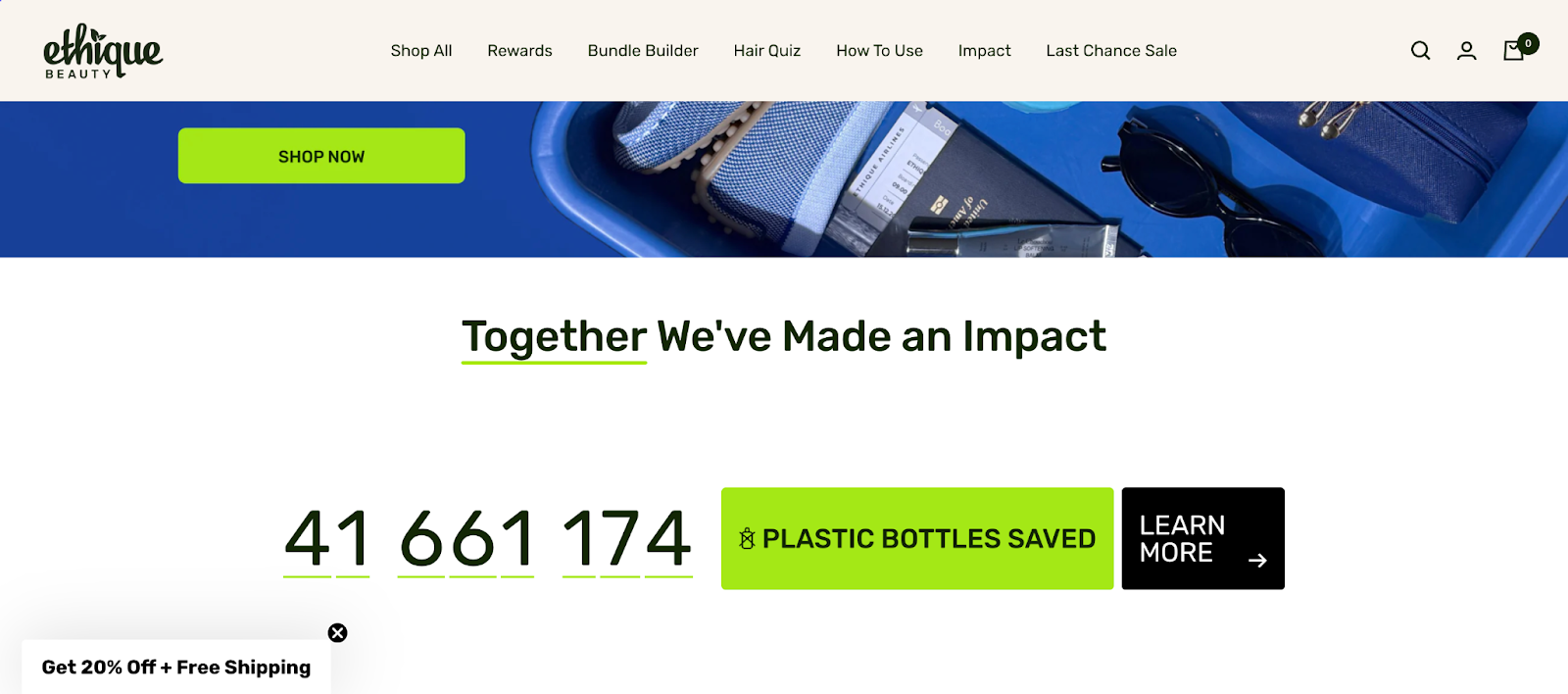
12. Blueland
Blueland is disrupting the cleaning industry with refillable, non-toxic household products designed to eliminate single-use plastics.
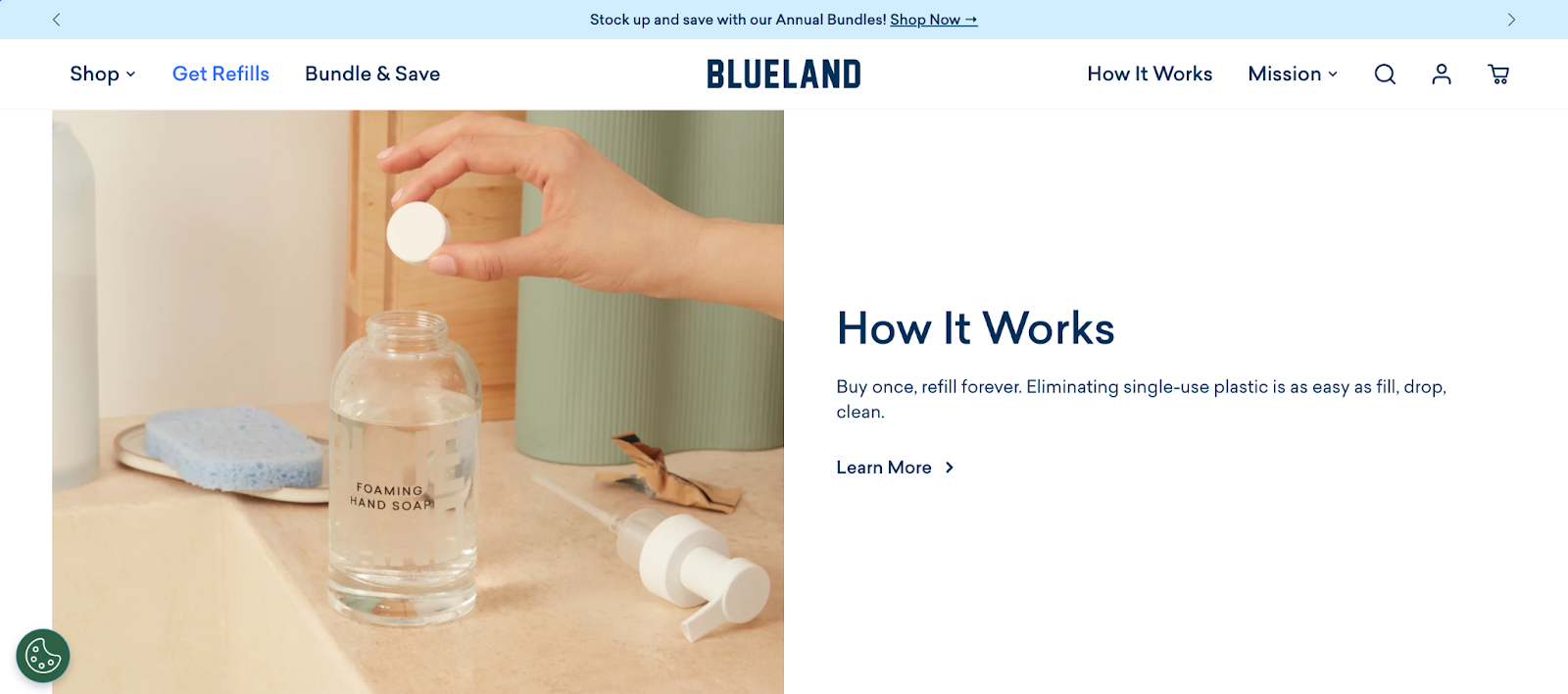
Instead of traditional cleaners in plastic bottles, they offer reusable containers and dissolvable cleaning tablets, making sustainable cleaning easy and accessible.
Their core message is clear:
“Cleaning up the planet starts with cleaning your home.”
Product development at Blueland is guided by four key values: accessibility, innovation, efficacy, and conscious cleanliness.
These aren’t just words—they back them up by showcasing third-party certifications directly on their website, adding credibility to their claims.
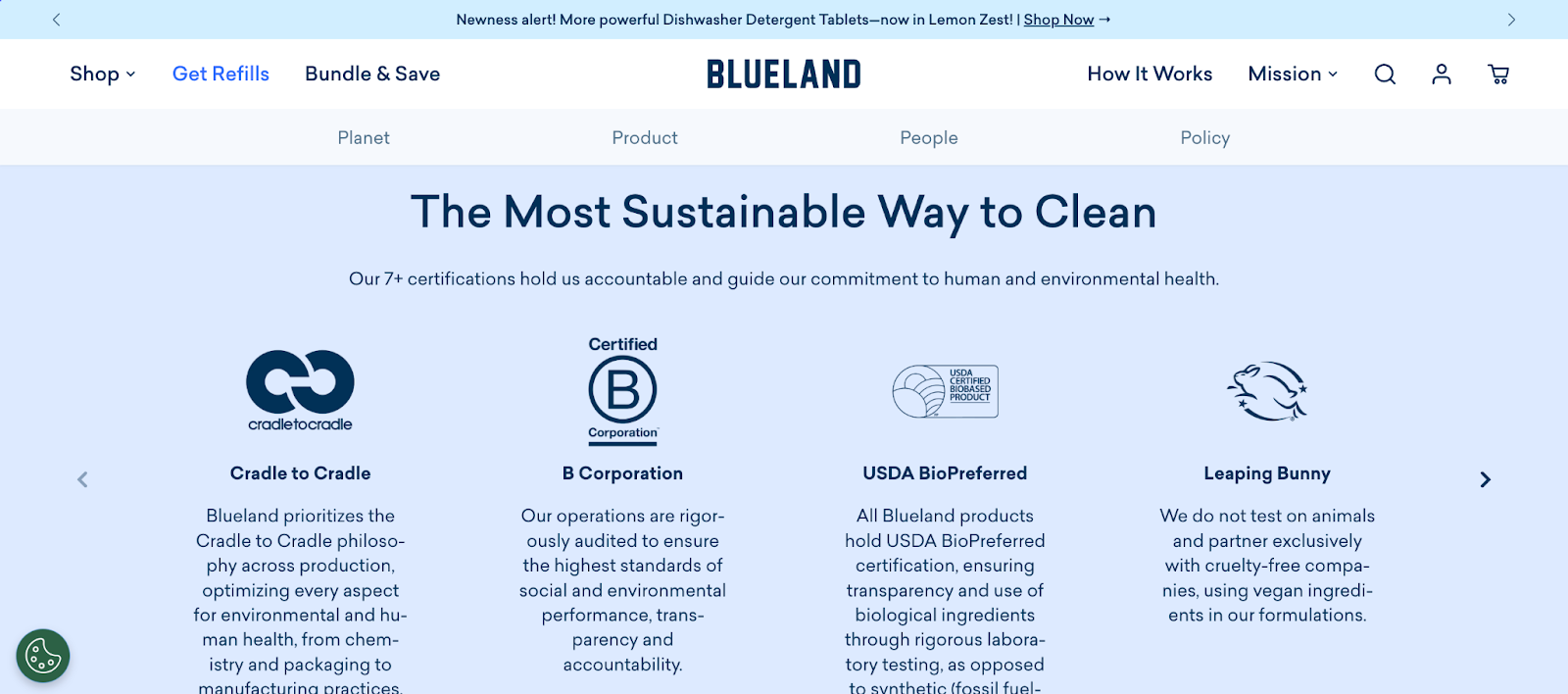
They also prioritize education across all channels:
- On Instagram, they explain how their products work and what makes them safer alternatives.
- They raise awareness about broader environmental issues like climate change in a relatable, action-driven way.
- Their blog is another key platform, where they publish regular content to inform customers about packaging, plastic waste, and sustainability tips.
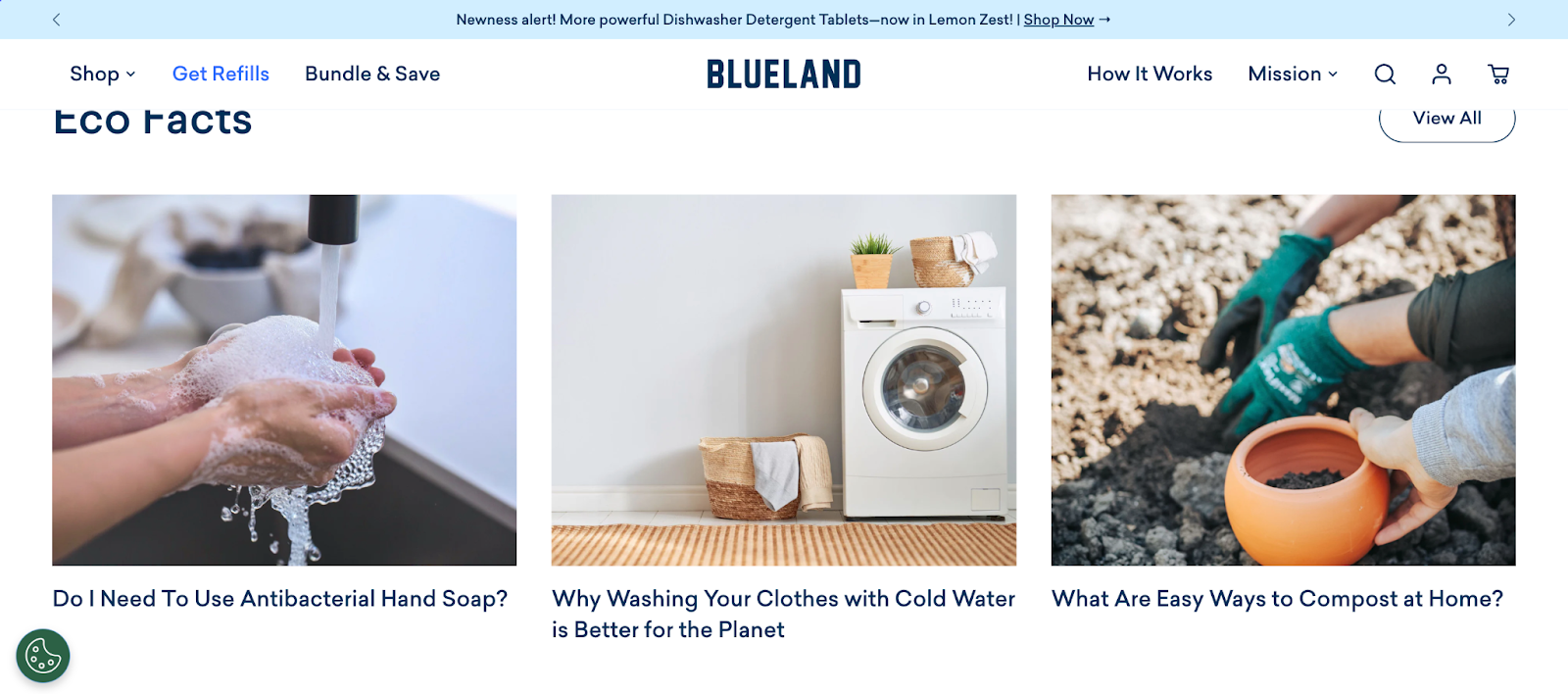
Ethical marketing best practices
Ready to build an ethical marketing strategy that actually resonates?
Start with these five core actions that can elevate your brand’s integrity and connect you with values-driven customers:
1. Create an ethical marketing policy
Think of this as your brand’s moral compass. It should outline:
- What your brand stands for
- How you communicate with your audience
- What kinds of messaging or tactics you won’t use
- How you handle mistakes or public feedback
Make the policy public, refer to it in onboarding and campaign planning, and revisit it regularly as your brand grows.
2. Be transparent about product sourcing & pricing
Don’t make people guess where your materials come from or how your pricing works. Instead:
- Share your supply chain story
- Disclose who made your product and under what conditions
- Explain why it costs what it does
Everlane pioneered the term “radical transparency” by breaking down the cost of every garment and revealing factory locations and conditions.
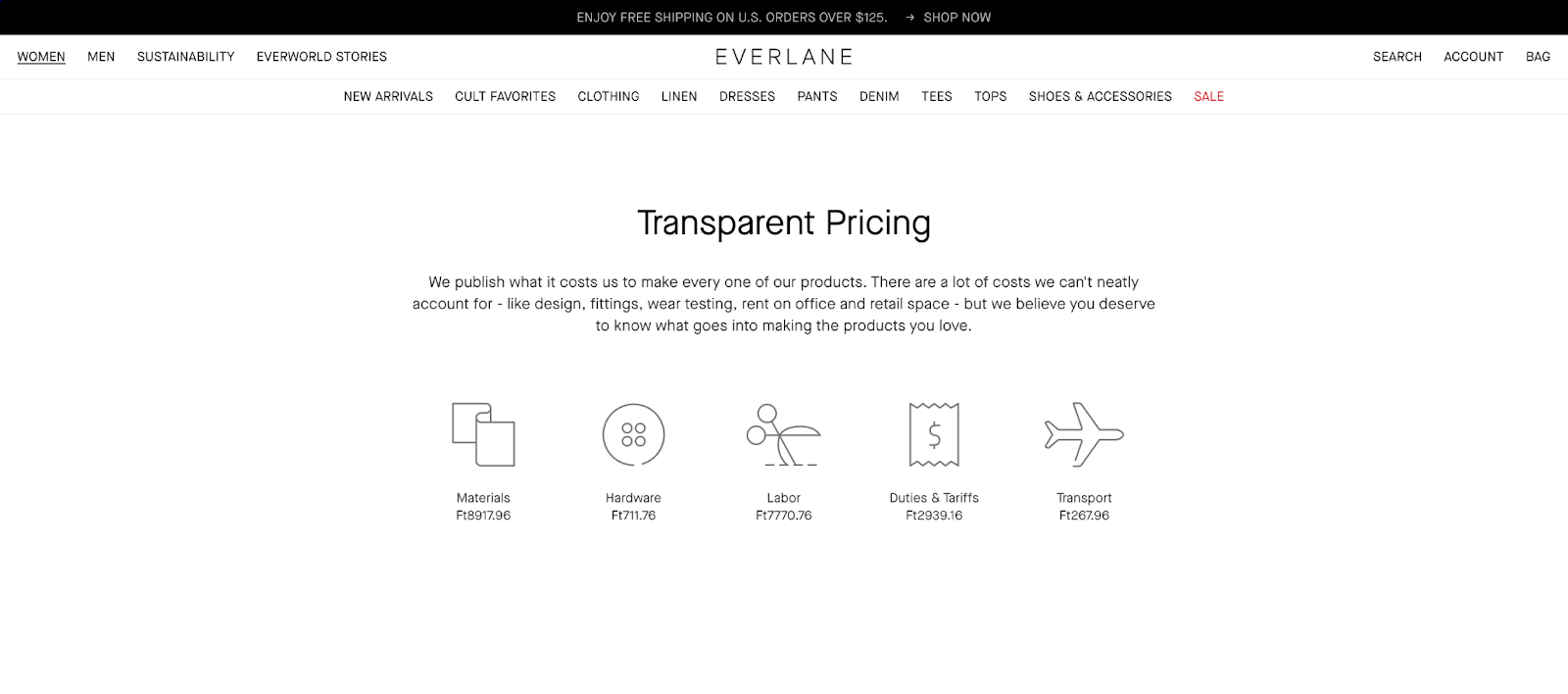
3. Prioritize long-term relationships over short-term wins
Clicks are great, but trust is better. Avoid urgency hacks, fake scarcity, or clickbait that may convert in the short term but hurt long-term credibility.
Instead, invest in:
- Educational content
- Ongoing email nurturing
- Proactive customer support
- Fair return policies
Make sure that you audit your funnel for manipulative copy or dark patterns and replace them with messaging rooted in empathy and respect.
4. Respect opt-in & consent
Consumers are more aware (and protective) of their data than ever. Ethical brands:
- Get clear, explicit permission before sending marketing emails or texts
- Avoid auto-checking boxes at checkout
- Make it easy to opt out or delete data
Tip: Use a multi-step pop-up to grow your email list in a respectful way. By breaking your form into smaller steps, you can improve conversions while keeping consent front and center.
5. Educate without preaching
People don’t want to be shamed into change. That’s why ethical brands don’t guilt, they empower. To get it right, share:
- Sustainability tips
- Product care guidance
- Brand challenges and learning moments
For example, Ethique’s blog features educational content, such as “The Truth About Our Compostable Cardboard Packaging,” where they reveal their materials and sustainability choices.
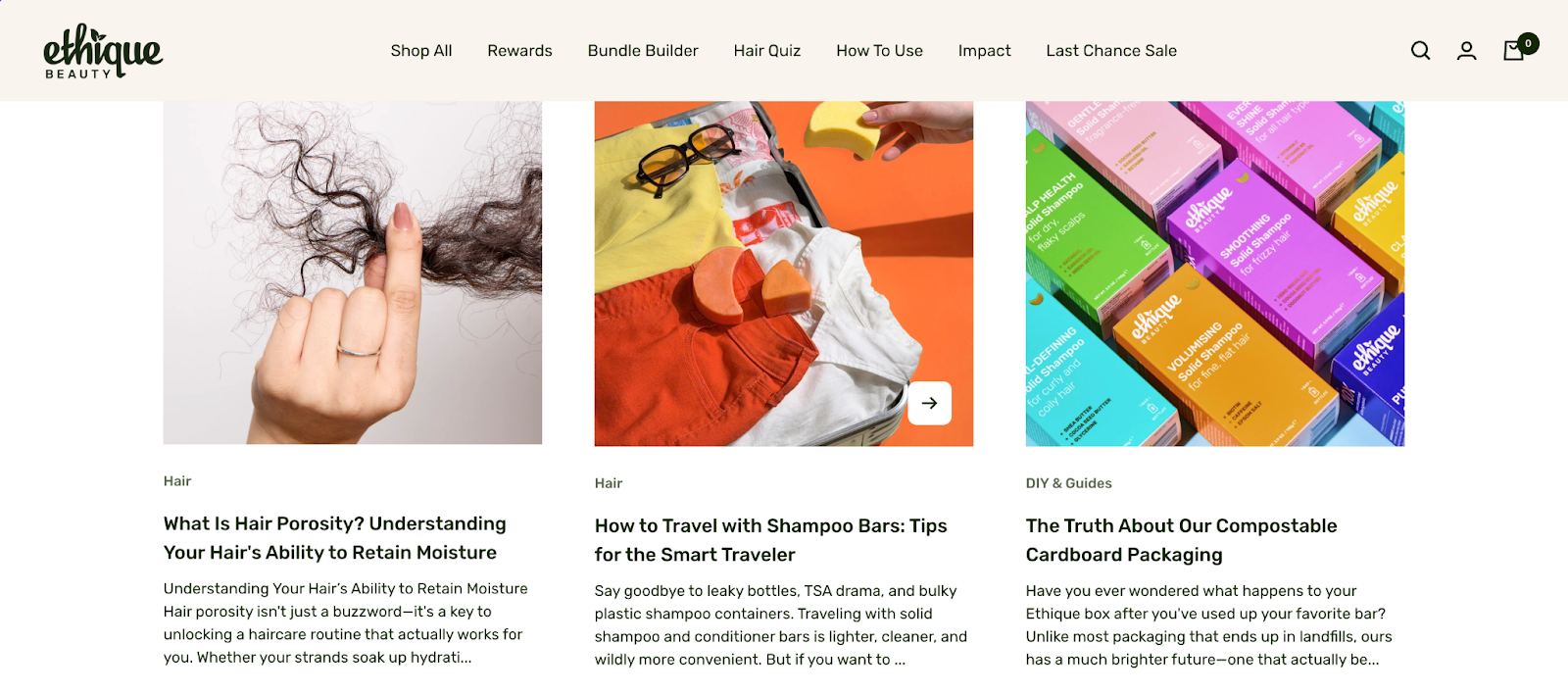
FAQ
What makes a marketing campaign “ethical”?
An ethical marketing campaign is rooted in truth, transparency, and respect. It avoids manipulation, represents products honestly, and aligns with the brand’s core values. The best campaigns also consider long-term impact—not just short-term gains—and often highlight social responsibility or sustainable practices.
How do ethical principles apply to small businesses?
Ethical principles—like honesty, fairness, and accountability—aren’t just for big brands. Small businesses can apply them by being upfront about product sourcing, engaging authentically with customers, and owning mistakes when they happen. You don’t need a massive budget to lead with integrity.
Can ethical marketing and sustainability really drive sales?
Absolutely. Consumers increasingly support brands that reflect their values. Campaigns that spotlight sustainable practices and ethical decision-making often build deeper trust, drive loyalty, and earn organic word-of-mouth. When done right, doing good is also a smart growth strategy.
Closing thoughts
Ethical marketing isn’t a niche strategy—it’s the future of branding. The best part? It’s not about being perfect. It’s about being honest, human, and aligned with what your customers care about.
Whether you’re just getting started or already on the path, leading with values like transparency, fairness, and sustainability builds more than just sales—it builds real trust.
Start small. Pick one ethical principle, put it into action, and let your brand grow with integrity from there.
Migration has never been easier
We made switching a no-brainer with our free, white-glove onboarding service so you can get started in the blink of an eye.
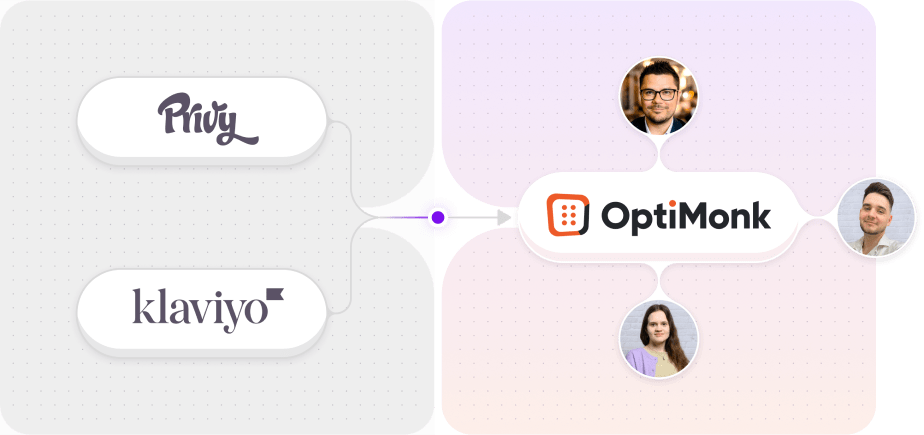
What should you do next?
Thanks for reading till the end. Here are 4 ways we can help you grow your business:
Boost conversions with proven use cases
Explore our Use Case Library, filled with actionable personalization examples and step-by-step guides to unlock your website's full potential. Check out Use Case Library
Create a free OptiMonk account
Create a free OptiMonk account and easily get started with popups and conversion rate optimization. Get OptiMonk free
Get advice from a CRO expert
Schedule a personalized discovery call with one of our experts to explore how OptiMonk can help you grow your business. Book a demo
Join our weekly newsletter
Real CRO insights & marketing tips. No fluff. Straight to your inbox. Subscribe now
Barbara Bartucz
- Posted in
- Marketing
Partner with us
- © OptiMonk. All rights reserved!
- Terms of Use
- Privacy Policy
- Cookie Policy
